© 2021 11619 769


СДЕЛАЙТЕ СВОИ УРОКИ ЕЩЁ ЭФФЕКТИВНЕЕ, А ЖИЗНЬ СВОБОДНЕЕ
Благодаря готовым учебным материалам для работы в классе и дистанционно
Скидки до 50 % на комплекты
только до 19.06.2025
Готовые ключевые этапы урока всегда будут у вас под рукой
Организационный момент
Проверка знаний
Объяснение материала
Закрепление изученного
Итоги урока

Сборник заданий для развития функциональной (читательской) грамотности на уроках английского языка в 7 классах общеобразовательной школы (на базе сплошных и несплошных текстов)
Данное методическое пособие содержит 15 сплошных и 15 несплошных текстов с заданиями для контроля понимания прочитанногою
Просмотр содержимого документа
«Сборник заданий для развития функциональной (читательской) грамотности на уроках английского языка в 7 классах общеобразовательной школы (на базе сплошных и несплошных текстов)»
Муниципальное бюджетное образовательное учреждение
средняя школа № 2
Сборник заданий для развития функциональной (читательской) грамотности на уроках английского языка в 7 классах общеобразовательной школы (на базе сплошных и несплошных текстов)
составитель
учитель 1 категории
Звонкова Татьяна Юрьевна
Смоленск 2021
Пояснительная записка
Часто говорят, что чтение - это одно из истинных удовольствий жизни. Однако чтение на своем родном языке - это одно, а чтение на другом языке - совсем другое, что влечет за собой определенные трудности для учащихся. Проблемы грамотности, образования, культуры, чтения являются особенно значимыми в наши дни и выходят на уровень проблем, от которых зависит благополучие нации.
Читательская грамотность – способность человека понимать и использовать письменные тексты, размышлять о них и заниматься чтением для того, чтобы достигать своих целей, расширять свои знания и возможности, участвовать в социальной жизни.
Функциональная грамотность –способность человека вступать в отношения с внешней средой и максимально быстро адаптироваться и функционировать в ней.
О существовании функциональной грамотности мы узнаем, только столкнувшись с ее отсутствием. Поэтому приходится говорить не столько о функциональной грамотности, сколько о функциональной безграмотности, что является одним из определяющих факторов, тормозящих развитие общественных отношений. Поэтому проблема функциональной грамотности рассматривается обычно не как научная и смысловая проблема, а как проблема деятельностная, как проблема поиска механизмов и способов ускоренной ликвидации безграмотности.
Чем понятие «чтение» отличается от понятия «функциональное чтение»? Чтение – это технология интеллектуального развития, способ обретения культуры, посредник в общении, средство для решения жизненных проблем. Без чтения невозможно интеллектуальное развитие и самообразование, которое продолжается в течение всей жизни. Функциональное чтение –это чтение с целью поиска информации для решения конкретной задачи или выполнения определенного задания. При функциональном чтении применяются приемы просмотрового чтения (сканирования) и аналитического чтения (выделение ключевых слов, подбор цитат, составление схем, графиков, таблиц). Ученик, у которого сформированы навыки функционального чтения, может «свободно использовать навыки чтения и письма для получения информации из текста – для его понимания, сжатия, преобразования и т.д.
Выделяют три группы читательских умений:
1) Ориентация в содержании текста (умение определять главную тему, общую цель или назначение текста; выбирать из текста или придумать заголовок; формулировать тезис, выражающий общий смысл текста; объяснять порядок частей, содержащихся в тексте; находить в тексте требуемую информацию и т.п.).
2) Преобразование и интерпретация текста (умение преобразовывать текст, используя новые формы представления информации: формулы, графики, диаграммы, таблицы; сравнивать и противопоставлять заключённую в тексте информацию разного характера; обнаруживать в тексте доводы в подтверждение выдвинутых тезисов и т.п.).
3) Оценка информации (откликаться на содержание текста; оценивать утверждения, сделанные в тексте, исходя из своих представлений о мире; находить доводы в защиту своей точки зрения и т.п.).
Овладение этими умениями и означает «смысловое чтение», которое является фундаментом всех обозначенных в новом стандарте результатов образования.
В своей практике учителя часто сталкиваются с многочисленными проблемами и затруднениями обучающихся при работе с иноязычным текстом, а именно: учащиеся не знают значений многих слов,не умеют читать диаграммы,не умеют озаглавить текст, не понимают смысла написанного, не могут выделить ключевые слова, не в состоянии сформулировать вопрос, не могут выбрать способ решения задачи, не умеют актуализировать наличные умения, не могут перенести знания и умения из одной области на другую, часто подменяют задание на более привычное, знакомое.
Английский язык – учебный предмет, познавательная ценность которого чрезвычайно высока: на таких уроках формируется мышление, прививается чувство любви к иностранному языку, через язык осмысливаются общечеловеческие ценности, воспитывается личность, с помощью языка происходит интеллектуальное развитие ребенка, усвоение всех других учебных дисциплин.
В формировании функциональной грамотности учащихся способствуют задания с использованием сплошных и несплошных текстов.
К сплошным текстам относят тексты, читаемые в повседневной жизни:
-
описание (отрывок из рассказа, стихотворения, описание человека, места, предмета и т.д.);
-
повествование (рассказ, стихотворение, повесть, басня, письмо, статья в газете или журнале, статья в учебнике, инструкция, реклама, краткое содержание фильма, спектакля, пост блога, материалы различных сайтов и т.д.);
-
рассуждение (сочинение-размышление, комментарий, аргументация собственного мнения).
К несплошным текстам относятся графики, диаграммы, таблицы, схемы (кластеры), географические карты и карты местности, план помещения, входные билеты, расписание движения транспорта, карты сайтов и т.д.
Основные требования к тексту, направленному на формирование навыков функциональной читательской грамотности:
1) Текст должен быть ученику интересен.
2) Текст должен содержать неизвестную ученику информацию. Но, при этом, актуальную для ученика.
3) Уровень трудности текста должен соответствовать возрасту ученика.
4) Объем текста не должен превышать норму (исходя из уровня и возраста учащихся).
5) Текст должен развивать кругозор.
6) Текст может быть взят из "реальной жизни"
7)Текст не должен быть перегружен цифрами, датами, терминами.
8) Иллюстрации не отвлекают, а помогают разобраться в содержании текста.
9) Текст должен быть структурирован: заголовок, абзацы, прямая речь и т.д.
10) При необходимости нужно адаптировать текст.
11) В тексте иллюстрации должны способствовать развитию познавательной активности.
12) В тексте не должно быть ошибок.
13) Содержание текста должно опираться на жизненный опыт ребенка.
Данное методическое пособие содержит 15 сплошных и 15 несплошных текстов. После каждого текста предложены 3 разных задания для проверки понимания прочитанного.
Unbroken texts
Text № 1
Magazines
| B. Twist keeps you up-to-date on all of the fashion and beauty choices of our favourite celebs. It is your number one choice when you need someone to give you ideas on how to develop your own unique and fabulous style! Twist also contains fun, teen-targeted quizzes that are certainly worth trying! C. Glitter is a magazine “for girls who rock”. If you're looking for more than gossip, you're in luck! Glitter has a fabulous book club column that discusses hot new books. Glitter also has a “real people” section where everyday people can share their stories with you. D. Young World is a magazine for teenagers who care about their environment. It is full of interesting articles about the natural world and gives teenagers lots of advice about how they can be more environmentally friendly. It also organises special events that teenagers can attend in order to learn more things about the environment. F. Teen Ink is an online and print magazine with articles written only by teens and for teens. But unlike most magazines, Teen Ink has also fiction and poetry sections! So if you're a young literature enthusiast, you should start reading Teen ink! It is definitely not just another teen magazine like the ones you are used to read. G. Teen Heroes is a magazine that focuses on famous people that have lived in the past and are still alive today. It is full of inspiring articles and stories of bravery and achievement. It also has art and history competitions as well as information about museums all over the world. H. Fit for life is a teen magazine about sporting heroes and teams around the world. It has special features on events, such as The Olympic Games and world sporting championships in every sport you can think of. There is always a special article on extreme sports, too, and on how you can get involved in them. |
1. The people below are looking for a magazine to read. Which magazine would be the most suitable for the people below:
a) Tony loves animals and would like to be a vet. He enjoys walking in the countryside and taking photographs of animals and plants. He cares very much about the natural world around him. _________
b) Gemma is a very good artist and she is thinking about going to art school to train as a clothes designer. She likes watching celebrities on TV to see what they are wearing, but she isn't interested in celebrity gossip. _______
c) Martin is very shy. He has just moved to a new school and is feeling quite lonely. He'd also like to get fitter but is not sure how to do it. ______
d) Nick and Tony love pop music and reality TV. They love to follow what the latest young stars are doing and they travel to different places to try to meet their favourite singers and actors. _______
e) Georgia likes to read and she also writes short stories about her life and the people around her. She has also started to write fantasy stories for children. She would like to read things written by people her own age. _______
2. Read the sentences and write T (true), F (false), NS (Not stated):
a) Glitter organises special events that teenagers can attend in order to learn more things about the environment ________.
b) Twist has articles about historical events. ______
c) Teen Ink offers modern songs. ______
d) Fit for life contains articles about famous sportsmen. ______
e) In Live your life teens can get information about art. ______
f) You can find Glitter in shops for teens. ______
g) Twist offers quizzes for readers. ______
3. What is the goal of this article?
-
Explain why teenagers don't like reading magazines.
-
Provide useful information about the variety of magazines for teenagers.
-
Offer teenagers an opportunity to learn about current events.
Text № 2
The new Forest
| Last week my school got the chance to take part in a week's work experience in The New Forest. We were helding a charity that protects and counts the ponies that live in The New Forest.
One of the things that shocked me during my time in the forest was that tourists do not act responsibly in the forest. I can understand that they have come to enjoy the beautiful forest, but they don't understand that they shouldn't get too close to the ponies. This isn't because the ponies are dangerous. Actually, quite the opposite is true as they are usually very friendly. They will often come up to tourists who are having a picnic and try to steal their food, which is really funny. The problem is that the ponies should not be encouraged to get too close to people in case they start to depend on them. Unfortunately, many ponies are hit by cars every year. There are several roads that go through the forests and tourists drive way too fast. I don't think people realise that they are causing problems and there should be lots notices everywhere, telling them how to behave near the ponies. Generally it was a wonderful experience and it was taught me that I want to study for a degree in animal behaviour. This is something I wouldn't have thought about before. I'll probably study in London as I love living in the city and I will definitely come and help in the forest again. I am so happy that I spent the week working with the ponies. It was not only educational and interesting, but a lot of fun, too.
By Simon Finch |
1. Where we can find this text?
-
in a magazine for teenagers
-
in a tourist brochure
-
in a medical journal
-
in a History coursebook
2. Find the right ending for the sentences and answer the questions.
1. Simon describes the accomodation
a) as quite comfortable, having to share the room with others.
b) as standard but inviting for guests.
c) as unexpectedly modern but luxurious
d) as expensive, if one takes into account what was offered.
2. What was Simon attitude towards tourists?
a) He enjoyed talking to them about animal issues.
b) He thought they shouldn't be allowed in The New Forest anymore.
c) He believed he needed to be more educated about the ponies.
d) He tried to teach them about the wildlife in the forest but failed.
3. One of the problems ponies face is that
a) people treat them very badly
b) they live in bad weather conditions.
c) they die as a result of car accidents involving tourists.
d) they are completely dependent on humans for their survival.
4. What affect has the experience had on Simon.
a) He wants to live near the forest.
b) He wants to buy a pony if he can afford to.
c) He wants to study animals at university.
d) He doesn't want to work with a charity again.
5. What mignt Simon say about his experience in The New forest?
a) After spending a week helping in The New Forest, I am more certain that ever that animals need our help and attention.
b) The wild ponies of The New Forest can be quite dangerous and tourists have to protect themselves from them.
c) The New Forest is slowly being destroyed and this is why the government should try to protect it.
d) I joined a project to ban all tourists from The New Forest in order to protect the wild ponies.
3. Complete the sentences with a right word:
a) It was really interesting work so I was (thrilled/excited/upset) to be able to take part.
b) We shared a dormitory with eight beds in it, so at night we (chatted/listened/shouted) to each other and I really got to know everyone.
c) One of the things that shocked me during my time in the forest was that tourists do not act (actively/honestly/responsibly) in the forest.
d) This isn't because the ponies are (sociable/unpleassant/dangerous). Actually, quite the opposite is true as they are usually very friendly.
e) Generally it was a (funny/interesting/wonderful) experience and it was taught me that I want to study for a degree in animal behaviour.
Text № 3
Creating a youth club
|
Once we had a building, lots of people came to help us paint the rather dirty rooms and put furniture in it. C ______ Then, a big business in the town gave us three computers and a large TV. The local football team gave us some sport and fitness equipment and they send a coach twice a week to do health and fitness classes with us. D ______ There we can buy drinks and snacks. My mother often buys cakes for the cafe. We also do lots of art at the youth club. We put our pictures on the walls to make the place look really interesting and colourful. I think the most important thing about our youth club though is that it is a place that young people can go to if they are feeling lonely and want someone to talk to. Also, there is a homework room where we can sit quitly and study. This is useful to me because I have to share a room with my little sister at home. E ____ Obviously that makes it hard for me to concentrate on my school work. Creating the youth club, in my opition, is the best thing that has happened in our town recently.
|
1. What is the aim of this article?
-
to exlain the youngsters why they shoudn't attend a youth club
-
to describe how a youth club can be created
-
to attract the attention of the authorities to the problems of the young people.
-
to prevent yougsters from unsocial behaviour.
2. Put these sentences into the right place in the text
1) We didn't have to buy anything as so many people gave us chairs, tables, desks etc.
2) However, the shop wasn't suitable for what we needed.
3) I love her very much but she talks all the time and makes a lot of noise.
4) As a result, people were very bored ans it was difficult to make new friends.
5) The building was clean and bright so we didn't have to do anything to it.
6) She always behaves very well because she is shy and quiet.
7) The owner did not want to rent it to anyone and that's why he said we could use it permanently.
8) Some of the parents run a small cafe in the youth club, too.
3. Read the sentences and write T (true), F (false), NS (Not stated):
-
They created a new outh club two years ago. _____
-
At the beginning it was difficult because they had to find a suitable building. _____
-
They found a sponsor for their project. _______
-
They had to pay a monthly rent. _______
-
To make the place colourful and interesting they bought new furniture. ______
-
The goal of the club is to join different youngsters. ______
-
Only rich young people can join the club. _____
-
In the homework room you can find a lot of coursebooks. ______
-
Creating a youth club is a useful thing for the local society. ______
Text № 4
So what happens after school?
| I was wondering what I should do with my life when I finish school. My parents told me that I still had a couple of years ahead of me but that did not reassure me. So I went online and found everything about career advisors.
The advice is not just about the part of finding a job; it is also telling the student what university course they must do first. If a student wants to become a lawyer, he or she will have to go to the university for three or four years to study law. However, if someone wants to be a doctor, they will need good grades in biology and other science subjects. With good grades, they can go to university and do their basic medical training which is six years. But their studying doesn't finish at university. They then have to study at hospital for another two or three years. The career advicer also helps students who don't have the gardes to go to university. The advicer helps the students with their CV and shows them how to find and apply for jobs. Sometimes there are short courses they can do to learn a new skill quickly. For example, they can go on a hairdressing course and then learn more while they work. Some organisations offer training on the job, such as factories and farms. The government has many areas which offer possibilities for those who can't go to the university. Students can join the army and be trained to become a soldier, or if they want, they could become a sailor with the navy. So I guess that now I shouldn't be feeling so anxious. When the time comes, I'll make sure I'll ask a careers adviser for help.
|
1. What is the main idea of this article?
-
All students should to to the university after school.
-
The service of career advicers is very useful and even necessary.
-
The career advicers earn a lot of money for their job.
-
Every school should hire a career advicer.
2. Answer the following questions:
1. How do career advisors meet the students?
A. in a small group
B. all the class together
C. in individual meetings
D. the whole school at the same time
2. What does the advisor look for before giving advice?
A. what the student isn't very good at
B. university courses in other countries
C. what the student is better at
D. the student's CV and folder
3. What happens after studying medicine at a university?
A. A student must go on to study biology as well.
B. The student can train others to become doctors, too.
C. The student can practise medecine immediately after.
D. The student carries on learning for another few years.
4. How do advisors help students with not very good grades?
A. They show them the best way to get a job.
B. They help them with on-the-job training.
C. They give extra classes to help them get to university.
D. They take them to a farm and a factory to show them their options.
5. What would Sam text to a friend who seeks career advicer?
A. I'am as worried as you are as I don't know what options are available for us.
B. I guess you could ask your parents for help; that's what I did.
C. Your teachers will make career decisions for you so that you don't have to deal with it.
D. There is no need to panic as there are people at school that can help you with that.
-
Make a lexical mind map with the root word education.
Text № 5
The most unusual festival I've been to
|
The way the race works is as follows. There is a very large piece of cheese, which is round, like a wheel, and weighs about 4 kilograms. ______ One of the people in charge of the event sends the large piece of cheese down the hill and half a second later everyone taking part runs down the hill after the cheese. ______ In the past, the cheese has hit people watching the race and injured them. It's not just the spectators who get injured; many of the people running down the hill get serious injuries, too. The injuries are usually broken ankles and legs as the runners lose control coming down the steep hill. _____ There are also lots of local people helping to catch the runners, so they don't fall over and hurt themselves; they are called catchers. This event become so famous that it appears on television all over the world on the BBC network and, also, on Trans World Sport. People watching this event think it is very strange and that the people taking part are crazy. By Diane Key
|
-
Read the sentences and put them into the correct place in the text. One sentence is extra.
A. It was wood around it to protect it.
B. The police think the event is very dangerous.
C. Winners of the event have come from the United Stated, Australia, New Zealand, and Nepal.
D. Sometimes they use an old tyre.
E. The words in the message showed that this event was already a tradition then.
F. That's why, at the bottom of the hill, there are lots of ambulances and medical staff.
G. The first person over the finnish line at the bottom of the hill wins the cheese.
H. Children are not allowed to eat the cheese.
2. Read the sentences and write T (True), F (False), NS (Not stated):
-
Cooper's Hill Cheese-Rolling takes part every month. ______
-
The race began in 1826. ______
-
There are always a lot of journalists at the festival. _______
-
The festival is very popular only in England. ________
-
The cheese should weigh 6 kilograms. ________
-
The race is completely safe. _______
-
The race is well-known thanks for mass media. _______
-
Only men can take part in the competitions. _______
-
The winners get expensive presents, _______
3. Find the right endings for the sentences:
1. On a Saturday at the beginning of spring, people from all over the world,
- celebtate Christmas
- go to Cooper's Hill to see the race
- begin to find a new job.
2. Each year, the event becomes more and more popular with people coming from all
over the world to
- take part and to watch the event
- to sell their sports equipment
- to find a partner for marriage
3. In the past, the cheese has hit people watching the race and
- killed them
-
injured them
-
fed them
-
There are also lots of local people helping to catch the runners, so they don't fall over and hurt themselves; they are called -
- catchers
- watches
- winners
Text № 6
Sports events
| A Cricket
B. Tennis Most tennis competitions take place outside and need the weather to be warm and dry. There are few seats compared to other sports so it can be difficult to get tickets. These competitions can take all day so people take their own food and drinks with them. One of the rules of watching tennis is that you must be very quiet while the athletes are playing. When players score a point, the crowd claps. C. Skiing
D. Football Football can be a very noisy game and is played all year round. For the important matches, some stadiums can hold around 90, 000 people. Some people have to stand all the time. Football fans often have to travel a lot when their team plays away. You are not allowed to take your own food into the stadium. They sell hot food and drinks. E. Basketball Basketball is played outside and there are two teams that try to get the ball into the basket the most times. People who watch basketball are sometimes noisy but not as much as football fans, for example. Basketball can be played all year round and it doesn't matter what the weather like outside.You can't take food into the stadium, but members of staff go around the stadium selling cold snacks and drinks. F. Horse racing Horse racing is an event that lasts all day and has lots of different individual races. These events take place all year round and in all weathers except for snow or if the ground is frozen. Lots of people take picnics and can park their car near the race track. There are usually a few restaurants available with views of the race track.
G. Beach volleyball This is a very popular sport in the summer by the seaside. Many games are played on public beaches, so anybody can do and watch. The players don't wear shoes because they are playing on the sand. As it is public, anyone can take food and drinks to the matches. But there is too much sand to have a picnic when watching beach volleyball. |
1. The people below are enjoy going to sports events. Decide which sports event would be the most suitable for the following people:
1. Jane loves the cold and drinking lots of tea. She puts on some warm clothes, makes a lot of tea and goes climbing to watch sports events. She doesn't watch sports in the summer. _________________
2. Paul doesn't like noisy sports. During the winter he doesn't go to any sports events. He likes going to an event with his friends and having a picnic. He hopes it doesn't rain. ___________________
3. Dean and Jim like watching team sports and follow their team all over the country. They like to stand and shout really loud when their team scores. They always buy burgers and chips at half time. _______________
4. When Helen is on her summer holiday, she gets up early in the morning and goes swimming. She then finds a nice place to sunbathe. From where she is, she can watch her favourite sport. __________________
5. Carol usually books her seats in advance for the event. In the morning she prepares some sandwiches to have during the event. She talks a lot and sometimes event staff tell her to be quiet. ___________
2. Put the correct word into the sentences:
-
People are usually very (noisy/quiet/angry) while watching cricket.
-
One of the rules of watching tennis is that you must be very quiet while the athletes are (jumping/running/playing).
-
Skiing competitions take place in countries which have (mountains/snow/hotels).
-
Football fans often have to (spend/sleep/travel) a lot when their team plays away.
-
Basketball can be played (every month/all year round/twice a decade) and it doesn't matter what the weather like outside.
-
These events take place all year round and in all weathers except for (rain/ice/snow) or if the ground is frozen.
-
The players don't wear shoes because they are playing on the (ground/grass/sand).
-
Make a mind map with the root word sport using the lexis of the textText № 7
New Zealand
| New Zealand is in the South Pacific Ocean, a long way from anywhere. Australia is the closest country and that’s two thousand kilometres away. New Zealand is isolated and this makes it special. This isolation changes everything – New Zealand’s history, the weather, the way its people are and the trees, flowers and animals that you can see. New Zealand has a lot of water, clean air and good earth and there are many farms. It is famous for its butter, cheese and meat, which it sells to Australia, the USA, Japan and the rest of Asia. For a long time, no people lived in New Zealand. The first people to make New Zealand their home were the Māori. They arrived from Polynesia in boats made of wood, called ‘waka’. We don’t know when they arrived, but some people think it was between 950 –1130 AD. The Māori called New Zealand ‘Aotearoa’ or Land of the Long White Cloud. Around the year 1700 Europeans first came to New Zealand. Today thousands of people go to New Zealand on holiday. They go to see the beautiful countryside and to enjoy sports. While they are there, tourists can also learn about the Māori and hear many Māori stories about New Zealand. The Māori believe that the North Island looks like a fish, the South Island looks like Maui’s waka and Stewart Island looks like the waka’s anchor. The biggest business in New Zealand is now tourism. |
1. Where can we find this article?
-
in a newspaper
-
in a travel brochure
-
in a scientific research work
-
in a fashion magazine
2. Read the sentences and write T (true), F (false), NS (not stated):
1. Australia is the closest country to New Zealand and that’s two thousand kilometres away. _______
2. New Zealand is made up of three islands. ________
3. New Zealand was once part of the British Empire and still has the British flag as part of its own flag. _______
4. People in New Zealand are very friendly. _______
5. The weather in New Zealand is changeable. _______
6. The first people to make New Zealand their home were the Māori who arrived from Polynesia. _________
7. New Zealand is not popular among tourists. _______
8. Maori wrote a lot of books of fairy tales about New Zealand. _________
3. Write down all geographical nouns and give them definitions using a dictionary.
4. What is the purpose of this article?
-
to attract tourists to New Zealand
-
to provide the readers with useful information about New Zealand
-
to prevent from visiting New Zealand
-
to explain why New Zealand is exceptional.
Text № 8
My new hobby – gardening
| A garden is much more that just creating a beautiful environment. It can be a way to save or even make money and, more than that, it can be a place where you can express yourself.
If you just remember that planting way more than you need will take the stress away of losing some plants, you will save yourself a lot of worry, too. You need to ask yourself, which plants produce enough food to make them worth growing. I actually sat down and did the maths on that one this spring. It amazed me what some plants were worth. A tomato, for example, can produce 50-150 pounds worth of fruit. It takes up a lot of space but that's a lot of money coming out of a 50 p seed! So if I had known sooner what each plant could save us, I would have told my parents to fill our garden with different plants. And finally, gardening dosen't have to be all or nothing. But then I guess that's more of a personality weakness than anything. I struggle with doing things a little at a time. Once I decide to do something, I usually devote every waking hour to it for a little while and then get tired. So it's okay, to just have one tomato plant, and it's okay to have an off year. It will save you a lot of stress. By Beth Collins |
1. What is the main idea of this article?
-
gardening is convenient only for elderly people.
-
gardening is an excellent hobby for everyone
-
only rich people can afford gardening
2. Choose the best answers for the questions:
1. Beth wants to express
A. how designing your own garden should be hard work
B. how garden can mean different things to different people
C. the importance of selling flowers to make money
D. how hardeners have the best job when it comes to profit
2. How does Beth describe her perfect garden?
A. decorative
B. colourful
C. simple
D. complicated
3. What advice does Beth give to future gardeners?
A. spend lots of money to make your garden perfect
B. use what you can find around you
C. refuse to spend any money on your garden
D. ask other gardeners to help you
4. How does Beth feel about gardening?
A. She wants to grow everything she eats.
B. She hasn't learnt from her mistakes.
C. She needs to work harder in her garden.
D. She has learned plenty of useful tips.
5. What would Betty text her friend about gardening?
A. I'm so excited about my new hobby; it's not only fun but I hope I'll make money out of it one day.
B. I'm now spending lots of time watching my parents do the gardening and it looks great.
C. Gardening is so hard; you have to spend a lot of money and it's stressful, too.
D. Gardening needs lots of skills and money but it's certainly worth it. I love it.
3. Write down all the advantages of the gardening from the most significant to the least significant to your
Text № 9
Fossils
| Fossils are the rеmains of any аnimal or plant that hаs livеd оn Еarth. Тhey can be any part of the animal: thе bones, teеth, hair, shell or even its footprint. Sometimes thеy сan be the whоle animal. Anything that shоws us that there was onсe lifе is a fossil.
One оf the most common typеs оf fоssils fоund аrе of ammоnitеs. Аlthough the ammonitеs died out millions of yеars ago, 1____. Аmmonites lived in the sea bеtween 240 milliоn and 65 milliоn years ago, 2 _____. Тhеy had soft bodiеs and thеy didnt have spines. They lives in coiled shells and had long tentacles. They also had beaks. Тhе smallеst ammniltе shell was 2, 5 cm 3 ____. Thеy atе fish and сrabs, 4 ____, like mosasaur. Modern relatives оf thеsе fasсinating creаturеs inсludе 5 _____. Next time you are by the seaside keeр an eye out for a spiral рattern on loоse bits of roоk beсause 6 ______.
|
1. Read the sentences and write T (true), F (false), NS (Not stated)
A. Fossils are the rеmains of only dinosaurs who lived on the Earth. _____
B. Tyrannosaurus Reх was the biggest dinosaur in the world. _____
C. Palaеontologists who find fossils are very happy because these findings are very important. _____
D. Ammonites can be found only in the North. ____
E. Ammonites had a soft body. _____
F. Ammonites ate only plants. _____
G. We can watch fossils in the museums nowadays. _____
H. Fossils are very expensive. ______
2. Put the following sentences into the correct places in the text:
a) but they were also the favourite pray of large sea lizards.
b) we can tell a lot about them from these fossils.
c) octopus, quid and cuttlefish
d) and the biggest were over 3 metres in diameter
e) it might be an ammonite fossil
f) around the same time as the dinosaurs
3. Where can we find this article?
-
in a student magazine
-
in a travel brochure
-
in a history coursebook
-
in a political newspaper
Text № 10
Achieving your dreams
|
You can try to be perfect, but one person's idea of what is perfect is always different from another's. In fact, I believe it is our weaknesses that make us special. You can be the most brilliant, talented person in the world, but if you lack the enthusiasm, passion and excitement for what you do, then it doesn't matter how good you are. You may not be the best at what you do, but if you have great enthusiasm, you will reach your goal. 3 _____ Enthusiasm created dreams; talent does not. When you have a big dream for your life, people like to tell you that you aren't being realistic 4 _____. I think that when it comes to having a dream, being realistic ans sensible aren't helpful. These are simply limitations that we have placed upon ourselves. When we expericence a challenge, it is not a problem; it is part of the journey itself. Otherwise, it would not be there. Every step you take is one step closer to your dream becoming a reality. The important ingredient for realising your dream is hope. 5 ______. It can change the world.
|
1. What is the main idea of this text?
-
Dreams make us stupid and unpractical.
-
Dreaming umbellishes our life.
-
People dream only when they are young.
-
Dreaming has its benefits and drawbacks.
2. Put these sentences into the correct place in the text. There are three sentences you don't need to use:
-
On the other hand, others who are more talented may not.
-
You should never try to do anything that is difficult.
-
Hope is belief – belief in yourself and belief in the power of possibility
-
Many of you may be afraid to do what you really love.
-
I believe that you should always obey the rules.
-
Well, I say that you do not need to know the details of how your dream will happen.
-
It is very important that you listen to this advice.
-
I disagree; I believe there is a Huge grey area.
3. Make a mind map with a root word “feeling” using the lexis of the text:
Text № 11
London Museums
| A. Victoria and Albert Museum Hilights include the finest collection of Italian sculptures outside Italy. The Fashion galleries run from eighteenth-century right up to modern designer clothes. The Architecture gallery has videos, models, plans and descriptions of various styles and the famous Photography collection holds over 500, 000 images.
C. Tate Modern The Tate Modern is one of London's – and the world's – most famous art galleries. It has an international collection of modern artworks that few can beat, plus it is a historic piece of architecture worth visiting in its own right. On the top floor there is a restaurant with wonderful views of the River Thames.
E. Science Museum An incredible, hands-on museum that has seven floors of intertaining and educational exhibits, including a virtual reality space experience, old Nokia mobiles and a sixteenth-century fake arm. This is where you can explore the incredible Information Age exhibition – which is where the Queen sent her first tweet, signed Elizabeth R. F. London Transport Museum It's home to old buses, early examples of tube trains, maps, trasnport signs and uniforms, as well as fantastic posters, artworks and photographs showing London from 1890 to today. Once you've bought an entry ticket, you can visit anytime for an entire year. G. Imperial War Museum A powerful museum shining a light on people's experiences of war from the First World War to today. A few minutes' walk from Waterloo rail station, IWM is made up of many permanent galleries, such as the amazing Curiosities of War exhibit, and temporary displays, exploring recent battles and attacks. H. National Gallery An excellent and completely free-to-enter artistic institution in the heart of Trafalgar Square. Founded in 1824, The National Gallery is home to more than 2,000 works from artists such as Da Vinci, Van Gogh, Rembrandt, Michelangelo, Turner, Picasso, Matisse and Cezanne. You can even have a go at sketching in the galleries with the support of a gallery art teacher. |
1. Read the sentences and write T (true), F (false), NS (not stated):
A. In Victoria and Albert Museum the Fashion galleries run from sixteen-century right up to modern designer clothes. ____.
B.The British Museum has been displaying global objects discovered by British explorers _____.
C. In The Natural History Museum you can buy an excursion with a professional guide _____.
D. Science Museum A has seven floors of intertaining and educational exhibits _____.
E. London Transport Museum is the most expensive museum in the world. _____
F. National Gallery is free only for students. _____
2. What is the purspose of the article?
-
to inform readers about the means of transport in London.
-
to provide tourists with useful information about the most famous museums.
-
to prevent readers from spending too much money in London.
-
to find the ways to raise the interest of tourists to London.
3. The people below are all looking for a museum to visit in London. Look at the descriptions of eight London museums. Decide which museum would be the most suitable for the people below.
A. Amara and Nira love modern art and looking at interesting buildings. They don't really like traditional art and architecture. They would prefer to have lunch before they look around the museum. ______
B. Greg is very interested in history and especially anyhing to do with historical battles. Both his great grandfather and grandfather were in the army during World War I and II. _____
C. Michael is excited by anything connected to planets and stars and space exploration. He's like to visit a museum where there are things to do rather than just pictures and objects to look at. _____
D. Annabel likes to know the latest fashions and would like to be a clothes designer when she finishes college. She is always looking for ideas for her designs and she is a very good photographer, too. _______
E. Daniel is very interested in animals and the environment. He particularly enjoys museums that have more unusual things to look at. He loves reading books about explorers who have more unusual things to look at. He loves reading books about explorers who have discovered new places full of strange animals and plants. ______
Text № 12
Nature Holidays
| In the modern world, some parts of our planet are being damaged by human activity. However, it isn't all bad news. Many countries have created national parks to protect areas of outstanding natural beauty. These parks provide open, natural spaces for people to enjoy and they protect the environment, landscape and wildlife. Read, below, about three national parks where anyone can go to experience our extraordinary natural environment.
1. In Patagonia's Perito Moreno National Park, the dramatic Andes Mountains stretch along the border between southern Argentina and Chile. The high, snow-capped mountains form an amazing background to deep, freshwater lakes, thick forests and thundering waterfalls. One of the most spectacular places in the park is the Perito Moreno Glacier and Lake Argentino. The glacier is one of the few magnificent landscape. Patagonia is home to some fascinating animals: pumas, rheas (South American ostriches), armadillos and condors, the world's largest bird of prey. The area is perfect for doing outdoor activity like walking and climbing. 3. The Victoria Falls are on the border of Zambia and Zimbabwe and they give their name to the Victoria Falls National Park. The African name for the waterfalls is Mosi-oa-Tunya which means “the smoke that thunders” and it's easy to understand where the name comes from: when you get near the falls there is a deafening noise and there is spray and mist everywhere. Every minute, 550 000 cubic metres of water drop into the Zambesi River, 100 metres below.Visitors can fly over or go whitewater rafting in the Zambesi River under the falls. They can also go on safaris in other national parks near the falls. There are lots of exotic animals to see, including Africa's “big five”: lions, leopards, elephants, buffaloes, and black rhinos. |
1. Read the text. Are the statements true (T), false (F) or not stated (NS):
A. Government create national parks to make money _____.
B. Most national parks have big five-star hotels. _____.
C. The weather in Perito Moreno National Park is usually cold. _____.
D. You can't go hiking in the Everglades National Park _____.
E. You can go whitewater rafting over the Victoria Falls _____.
F. There are only five species of animals in the national parks near the Victoria Falls. ____.
2. Put the missing words into the sentences:
1. One of the most spectacular ______ in the park is the Perito Moreno Glacier and Lake Argentino.
2. The Everglades National Park in southern Florida has a unique _______ landscape.
3. The area is good for bird-watching and fishing _______ people have to use boats to get around the wet ground.
4. Despite looking slow, these ___________ can move at lightening speed.
5. Every minute, 550 000 ______ metres of water drop into the Zambesi River, 100 metres below.
6. There are lots of exotic animals to see, _______ Africa's “big five”: lions, leopards, elephants, buffaloes, and black rhinos.
3. Make a mind map “geographic names”
Text № 13
The great fire of London
| This week we're doing a project at school about London. Over 350 years ago, London suffered a terrible event. On the 2 d September 1666, a baker was making bread and cakes for the next day. It was one o c'clock in the morning when a very small piece of burning wood came out of the oven and set the fire to the building. In those days, as all buildings were made of wood, the fire moved very quickly. There was a family living above the bakery who couldn't get down the stairs.
Two days after the fire started, half of London was on fire 3 ______. Even the king came out to help the firemen. The fire destroyed important buildings, including the famous St Paul's Cathedral. It was very lucky that the Tower of London escaped the fire. In an attempt to stop the fire, the firemen destroyed many buildings to create a big gap across which the fire couldn't travel. 4 ______. By the 6th September the fire had been put out. London had burned for almost five days. Only 20 percent of London was not burnt but hundreds of thousands of people were left without homes. It was amazing that only six people died in this terrible event. 5_____ Just before the fire, there had been a horrible disease which was killing pots of people. The fire destroyed the disease. Architects helped to rebuilt London and built wider streets so a new fire couldn't move quickly. |
1. What is the main purpose of this article?
-
to protect future generation from city fires
-
to inform readers about one of the most significant events in English history
-
to describe the life of London in 17th century
-
to explain what people should do in case of fire.
2. Five sentences hve been removed from the text below. For each question, choose the correct answer. There are three extra sentences which you do not need to use.
A. Everybody was trying to put out the fire.
B. The baker was able to put out the fire with a bucket of water.
C. They escaped by climbing out of the window and jumping to the ground.
D. He made the firemen cups of tea and sandwiches.
E. This didn't stop it, but it did slow it down a lot.
F. The fire went from the house very quickly and the firemen had trouble controlling it.
G. The people caught buses to get out of London.
H. People say that, in a way, the fire did London some good, too.
3. Put the sentences into the correct order to write the summary of the text:
a) Architects helped to rebuilt the city and built wider streets so a new fire couldn't move quickly.
b) Two days after the start of the fire , half of London was caught by it.
c) The fire destroyed important buildings including St Paul's Cathedral, although the Tower of London escaped the fire.
d) On the 2d September 1666, a baker was making bread and cakes for the next day.
e) Before the fire, there had been a horrible disease which was killing pots of people, thanks to the fire the disease disappeared.
f) Over 350 years ago, London suffered a terrible event.
Text № 14
Getting a Weekend Job
| Last summer I wanted to start earning money so I could save to go on holidays with my friends. But if you are under eighteen, you are limited to what jobs you can do. I applied for jobs at a few shops in my neighbourhood but none of them had any jobs for teens. I tought I would never find a weekend job. Then, one day my mum gave me the local newpaper and showed me an advertfor the local zoo. They were looking for teenagers to work at the weekend. So I immediately applied for that job online.
On Saturday morning, I got up very early and went to the zoo. I was there too early and the gates were still locked. At nine o'clock the manager arrived to open the zoo. He took me to the staffroom and gave me a uniform which I had to put on over my normal clothes. He also gave me a pair of boots. He told me that the ground was wet and dirty everywhere so I would need them. My first job was to clean the elephant house. It was great fun because I was with another girl that had been working there for some months. She was really friendly and gave me lots of tips. And there were two baby elephants trying to play with us. They were very funny! My colleague told me that our next job was to clean the lion's cage. I was really scared but lucklily the lion wasn't in the cage at that point. It's been a couple of months since I started my weekend job and each week I am taken to work with other animals and people, I really love it! by Paula Mark, aged 16 |
1. Where can we find this article?
-
in a newspaper
-
in a coursebook for kids
-
in a travel brochure
-
in a magazine for teenagers.
2. Read the sentences and find the best answers for the questions.
a) How did Paula hear about the job at the zoo?
A. She was told about the job opening by a friend.
B. She went to the zoo to ask about the job.
C. One of her parents saw the ad first and informed her.
D. She saw the advert online
b) When did the zoo manager call Paula to say she was successful?
A. on the same day she met with him.
B. on Saturday morning
C. a few days after she applied for the job.
D. at the weekend
c) When did the zoo manager call Paula arrived at the zoo?
A. The manager was waiting for her.
B. She was given some boots.
C. she had to find the staffroom.
D. The zoo hadn't opened yet.
d) What did Paula do after she met with the manager?
A. She changed her clothes and put on a uniform.
B. She was introduced to a girl she would be working with.
C. She was given some work clothes and footwear.
D. She was taken immediately to clean the lion's cage.
e) What would Paula text a friend who is looking for a weekend job?
A. It's so disappointing that there aren't any jobs available for teens these days.
B. I am not sure if you'll be able to have a part-time job while you are still at school. It's so hard.
C. I am sure something you like will come up. I am looking forward to going to work every weekend.
D. Knowing the right people is the only thing that can get you into a nice job.
3. Choose the best word to complete the sentences:
a) I applied for jobs at a few shops in my neighbourhood but none of them had any (books/jobs/courses) for teens.
b) Then, one day my mum gave me the local (magazine/brochure/newpaper) and showed me an advert for the local zoo.
c) I put on my best clothes and went to the (cinema/zoo's office/newsagent's) the next day to meet the manager.
d) He took me to the staffroom and gave me a (ticket/uniform/food) which I had to put on over my normal clothes.
e) It was great fun because I was with another (worker/girl/assistant) that had been working there for some months.
Text № 15
Freshly restaurant
| Last week my parents and I visited Freshly, a modern British restaurant, in the centre of Brighton, Sussex. So it was the perfect opportunity to write a review for the school paper. All of the ingredients used in Freshly come from Sussex and the surroundings area. It was also the first restaurant in the world to be serving only English wine. Since opening in 2018 Freshly has won many awards. The owner and head chef at the restaurant is only 24 years old and she has been cooking three-course meals for her family since sge was nine and still at junior school. Jane did an apprenticeship at the famous Grand hotel, in Brighton, and later also went to catering school in London. She says this was one of the hardest courses she has ever done and sometimes she was so tired that she could hardly speak. Despite this, she never felt like giving up because she knew was following her dream. Freshly is a small restaurant with a view over the back streets of Brighton where you can watch the world walk by. The staff are always welcoming. The head waiter is very informative about the food and how it is cooked and also from where all the ingredients have come from. The chefs are not scared to experiment, so the menu changes regularly. The chefs are lucky enough to be a team of good friends, and they try to eat out at different restaurants as often as they can. They take a lot of inspiration from their favourite chefs to make the Freshly experience as perfect as possible. One thing to remember, however, is that you are limited to what they have that day on the menu. Freshly, however, will always cater for people with special food needs and vegetarians. The food is beautifully prepared and comes in small tasty portions. Wonderful homemade bread, too. Very nice – but expensive. For set menus with an extra cheeseboard, two bottles of water and 2 coffees will cost around 150 pounds without a tip. So yes, fine dining; but at a price. |
1. What is the main purpose of this article?
-
to provide readers with useful information about a new restaurant
-
to underline the drawbacks of the restaurant
-
to express a personnal opinion about the restaurant
-
to explain why the restaurant is expensive
2. Find the right answer for the following questions:
1. The food at Freshy
A. is grown by the staff.
B. comes from places in or close to Brighton.
C. comes from all over the world.
D. comes all over Britain
2. Where did the owner start to train as a chef?
A. at junior school
B. at university
C. at home with the help of her family
D. in a hotel
3. How did Jane feel while she was training to be a chef?
A. She was really tired but felt positive about the experience.
B. She wanted to give up because of the pressure.
C. She wasn't sure if she would be successful.
D. She found it quite easy to finish the training.
4. What is said about Freshly restaurant?
A. The head waiter is in charge of the menu.
B. The staff often change jobs because they lke to do different things.
C. It is a big and fancy restaurant with a great view.
D. The staff have a very good relationship with each other.
5. What would Peter say about Freshly restaurant?
A. Freshly restaurant may serve tasty food but it is extremely pricey – not worth it.
B. A great effort from a successful young chef who supports local products.
C. A famous chef that tried rather unsuccessfully to set up a different kind of restaurant.
D. The chereful staff and nice location are the only things that are worth mentioning.
3. Make a cluster with the root phrase “benefits of Freshly restaurant”
Broken texts
Text № 1
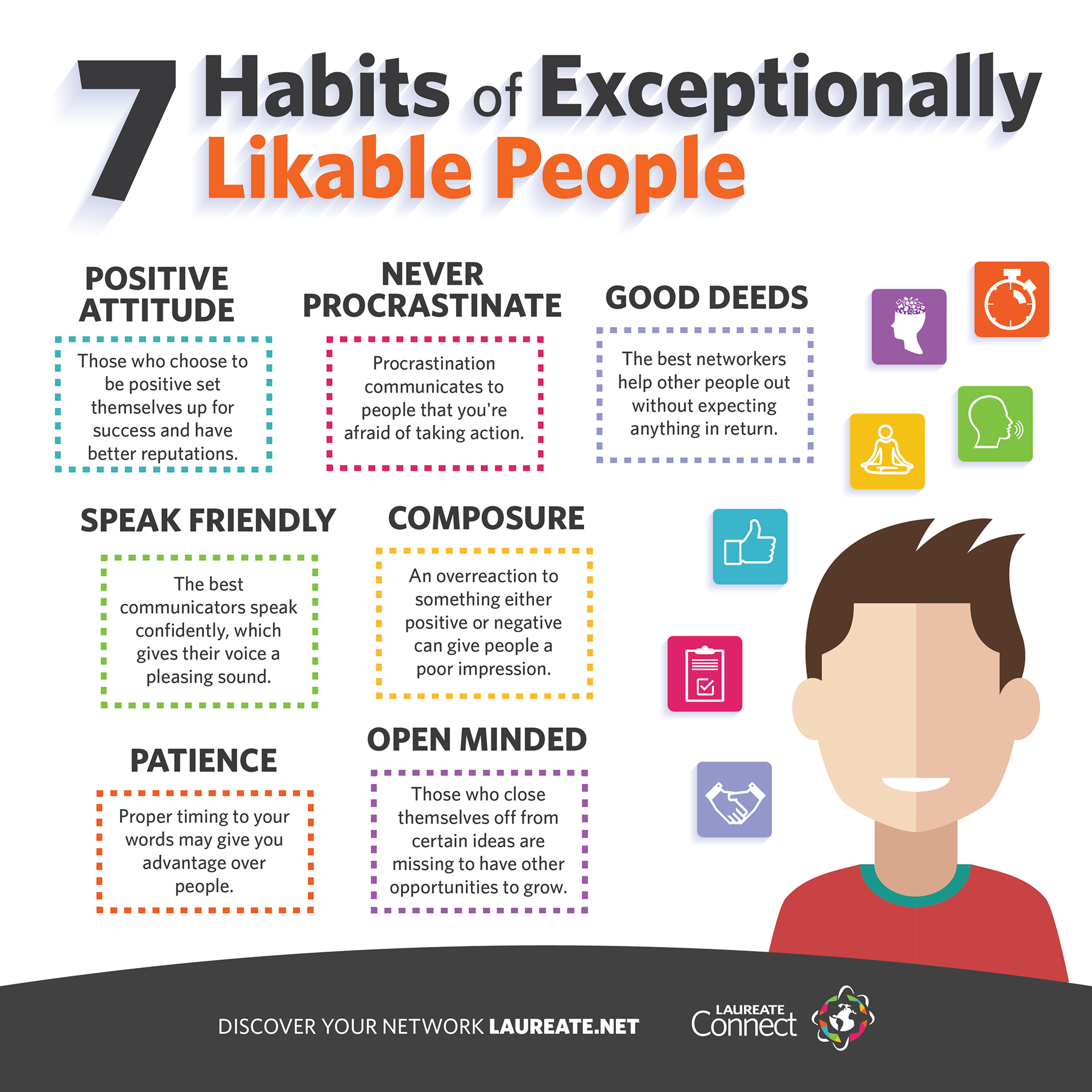
1. What is the main aim of this poster?
-
to give teenagers some advice on how to improve their exam results
-
to show teenagers what opportunities they can have if they will choose to study at a university
-
to show the main features of character of a successful person
-
to provide the readers with useful information about success in business
2. Read the sentences and write T (True), F (False), NS (Not stated):
A. The best networkers help other people out without expecting anything in return _____.
B. Those who choose to be rude to people have better reputation ______.
C. You can be likable only if you pay attention to your look _____.
D. People who communicate confidently are more successful _____.
E. If a person wants to be more successful he shouldn't show too much his emotions _____.
F. Successful people always try to prove their opinion _____.
G. If a person wants to be successful he should be always open to new ideas and experience ______.
3. Choose from the list other features of likable people and give a short description of them as in the text above:








Text № 2
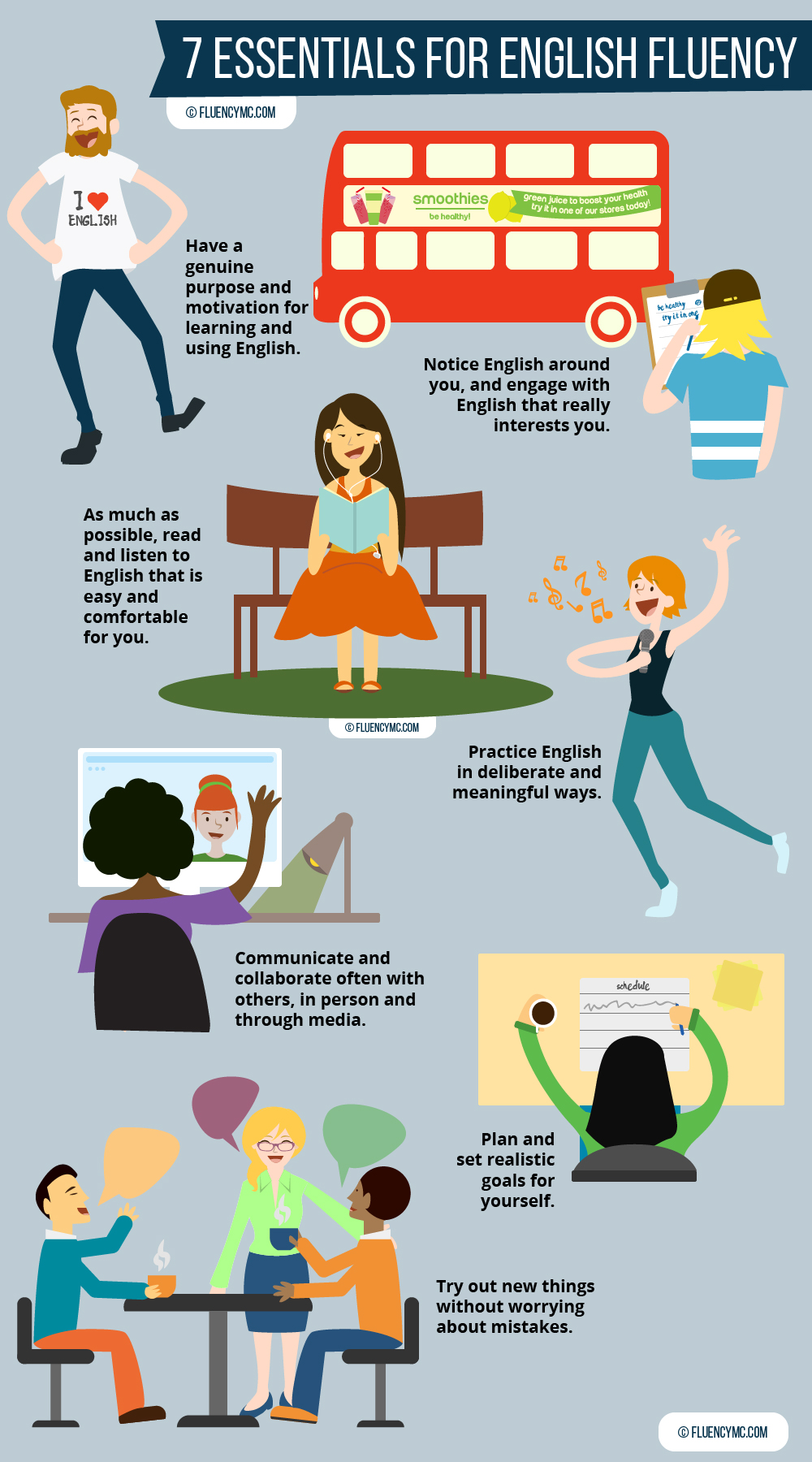
1. Where can we find this poster?
-
in a travel brochure
-
in a newspaper
-
in a Biology coursebook
-
in an educational journal
2. Read the sentences and correct the mistakes in them:
A. Have a serious purpose and desire for learning and using English.
B. Notice English around you, and play with English that really bother you.
C. As much as possible, write and listen to English that is difficult and unpleasant to you.
D. Speak English in deliberate and posivite way.
E. Communicate and play often with others, in person and through internet.
F. Plan and set ambitious goals for yourself.
G. Try out new things without thinking about rivals.
3. Choose other useful statements for the improvement of English fluency form the list below:
A) Find a native speaker with communicate in everyday life.
B) Try to learn more grammar rules.
C) Use all opportunities to speak in front of the public in English.
D) Join a local library.
E) Learn more up-to-date collocations and and idioms to use them in speech.
F) Write assays, reports and reviews in English.
G) Listen to modern English songs.
H) Learn English poems by heart.
Text № 3
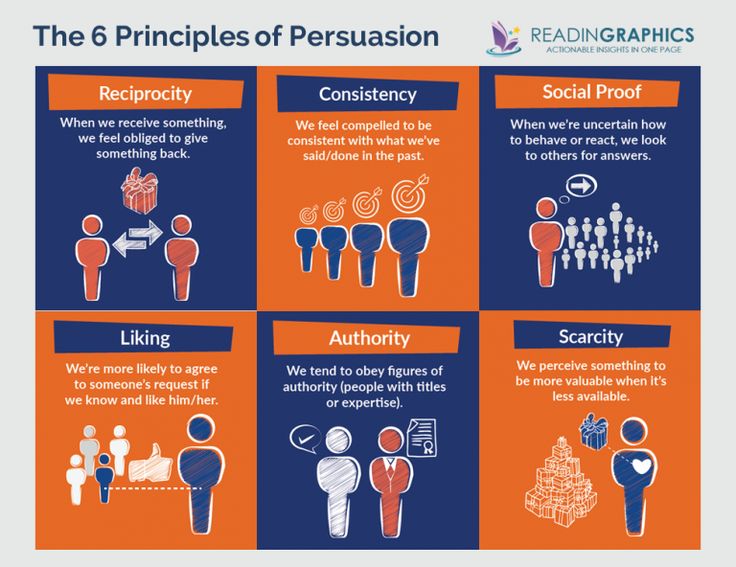
1. Who can be the target reader of this article?
-
children under 10 years old
-
adults of any profession
-
medical staff
-
teachers and scientists
2. Complete the sentences with a right ending:
a) When we receive something, we feel obliged to
- say thank you
- give something back
- take it for granted
b) We feel compelled to be consistent
- with what we've done or said in the past
- with the opinion of our relatives
- with the attitude of our colleagues
c) When we are uncertain how to behave or react
- we consult a psychologist
- we look to others for answers
- we search for advice in the internet
d) We're more likely to agree with someone's request
- if he/her is rich
- if he/she is a famous person
- if we know and like him/her
3. Read the following utterances and write after them Social proof, Authority, Liking:
A) We communicate with other people with enthusiasm if they share our point of view. ______________
B) We feel satisfied after our public speech if the audience listened attentively and asked questions. _______________
C) We obey our tutors if they have a high social status. _________________
D) We read a new book with more interest of it won a national price. _____________
E) We buy a new pair of shoe even if they are expensive if they were advertised on TV. _________________
F) We trust a new beautician more if she/he looks healthy and successful.
Text № 4
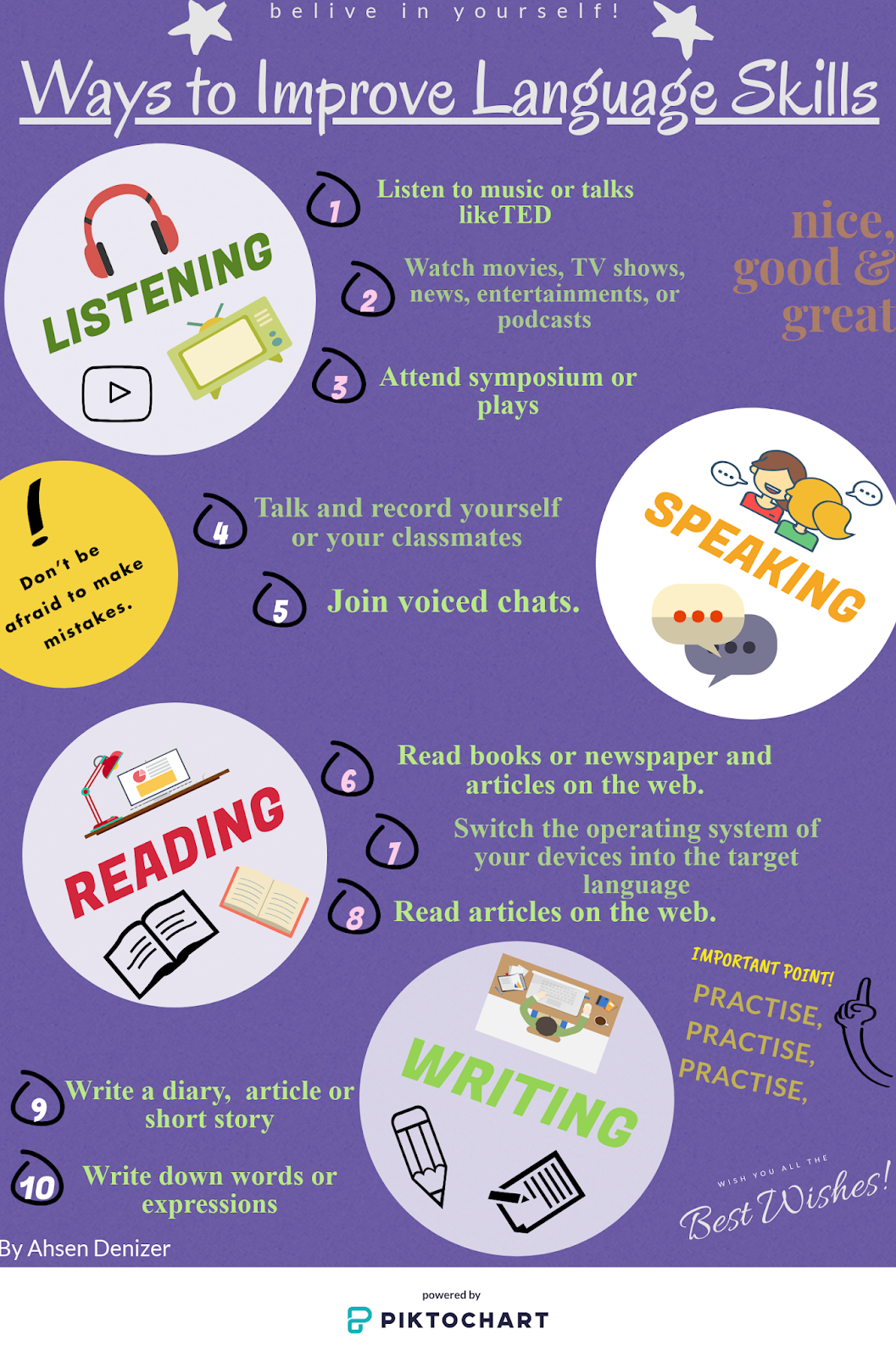
1. What is the aim of this poster?
-
to provide the candidates with useful information about exams
-
to underline some useful features to improve the knowlegde of English
-
to explain the target readers how they can obtain a higher position at work
-
to inform the readers about the best ways to continue their study after college
2. Read the sentences and write T (true), F (false), NS (not stated):
a) To improve to language skills you should listen only pop music. ______
b) You should watch movies in English and and watch news. ______
c) You should buy an expensive lap-top. _______
d) You should find a pen friend and to commnicate with him. _____
e) You have to subscribe on English newspapers. _______
f) You should study adroad. __________
g) You should write a dairy every day. ________
h) You should be a blogger, have a personal site and write your articles _______
-
Remake the article using the following form:











Text № 5
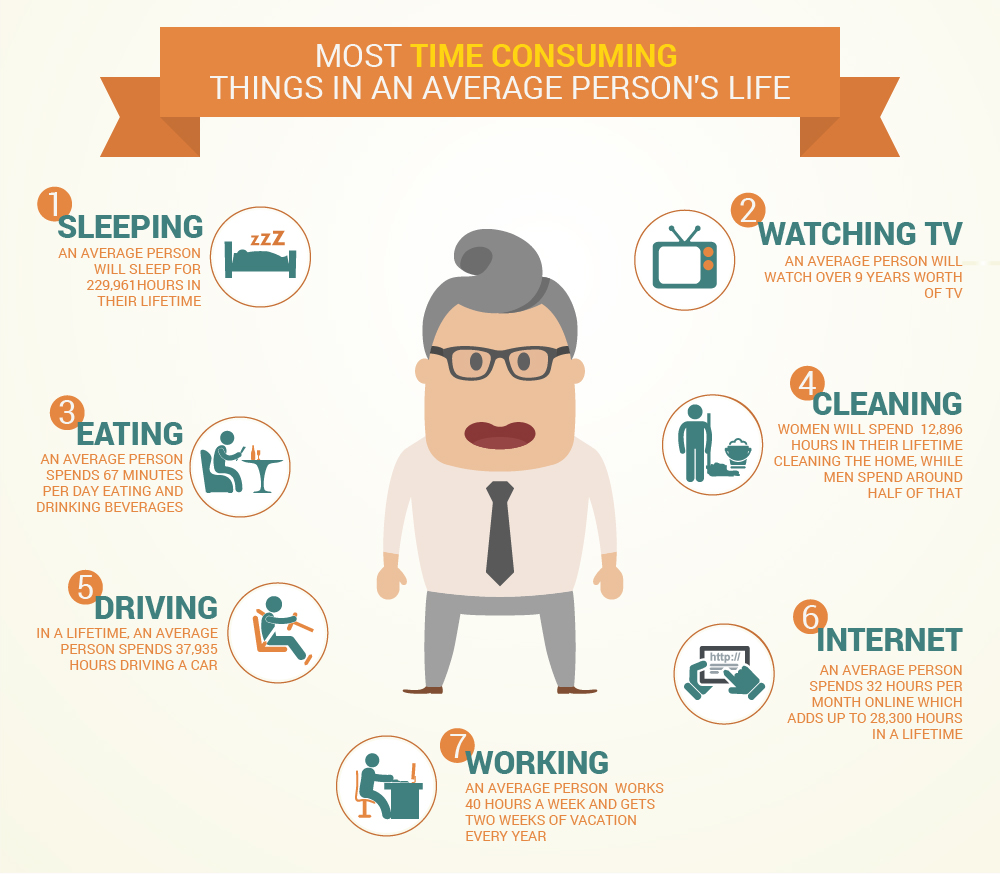
1. Where can we find this article?
-
in a financial journal
-
in a newspaper
-
in a public magazine
-
in a Chemistry coursebook
2. Put the missing words into the sentences:
-
An average person will sleep for _______ hours in his lifetime.
-
An average person spends 67 hours per day eating and drinking _________.
-
In a lifetime an average person spends 37, 935 hours _______ a car.
-
An average person will ________ over 9 years worth of TV.
-
Women will spend _______ hours in their lifetime cleaning the home while men spend around half of them.
-
An average person spends 32 hours per _______ online which adds up to 28.300 hours in a lifetime.
-
An average person works 40 hours a week and gets two ______ of vacation every year.
3. Do a research in you class and complete the following scheme:
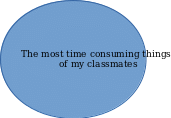






Text № 6

1. What is the aim of the poster?
- to show that old people are not less interested in using the Unternet than youngsters
- to explain why the use of the Internet is dangerous
- to offer people new opportunities to inscrease their income
- to provide the readers with useful information about the sources of internet intertainment
2. Read the sentences and write T (true), F (false), NS (Not Stated):
A) More than 70 per cent of over 50's use the internet for online shopping______.
B) 88 % say that is important to use an up-to-date mobile phones _______.
C) Even though the usage of the Internet drops off among over 65's 80 % are still logging on ______.
D) 80 % of old people use the Internet to watch movies ________.
E) The youngsters give a technical support to the old people ________ .
3. Do a research in you class and complete the following scheme:






Text № 7

1. What is the aim of this poster?
-
to offer the new opportunities to save water in flats and houses.
-
to show the attitude of customers towards water and sewerage services
-
to explain why people spend a lot of money on water
-
to advertise the new water and sewerage companies
2. Read the sentences and write T (True), F (False), NS (Not Stated):
a) People in England and Wales are not satisfied with water and sewerage services in 2015. _______
b) Customers can pay their bills once a year. __________
c) Houseowners know that they are responsible themselves for their water pipes. ______
d) In 2015 less customers think that their bills are fair. ________
e) More customers think that they bills are affordable. ________
f) Customers can choose their water and sewerage companies themselves. _______
3. Read the sentences and correct the mistakes:
-
Satisfaction with services remains very low in 2015.
-
Value for money is at a seven year high.
-
A third of houseowners know that their water company is responsible for shared sewer pipes.
-
Slightly fewer costumers feel that their gas and sewerage bills are affordable.
-
More houseowners think their charges are fair.
-
This investigation was done in England and Scotland in 2015.
Text № 8
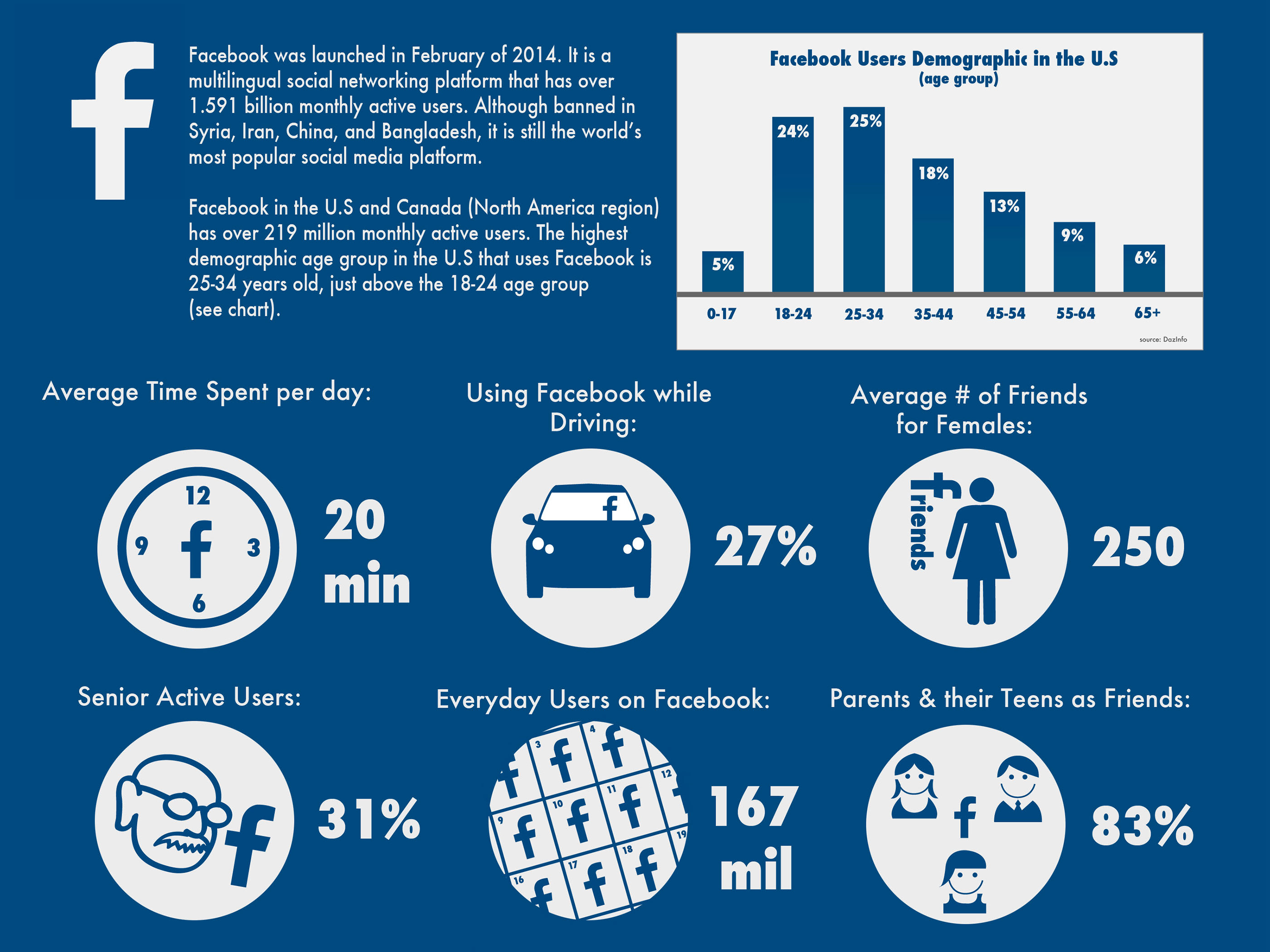
1) Where can we find this article?
-
in a Geography coursebook
-
in a daily newspaper
-
in a fashion magazine
-
in a scientific journal
2) What is the aim of the article?
-
to show that the usage of facebook gives more career opportunities.
-
to give information about the place of facebook in social life.
-
to explain readers why the usage of the Internet can be harmful.
-
to explain why social nets are important for people.
3) What can we know from this article? Read the sentences and write + or - :
a) Facebook is a miltilinguial social networking platform.
b) Facebook is used by people above 70.
c) People use facebook at least 20 minutes a day.
d) The highest demographic group age in the UK that uses Facebook is 25-34 years.
e) People use facebook more often from their mobile phones than from laptops.
f) 27 % per cent people use the facebook while they are driving.
g) People use facebook more often at the weekends than in the evenings during the week.
h) 31 % of users are olderly people.
i) Facebook is more popular than Instagram.
Text № 9
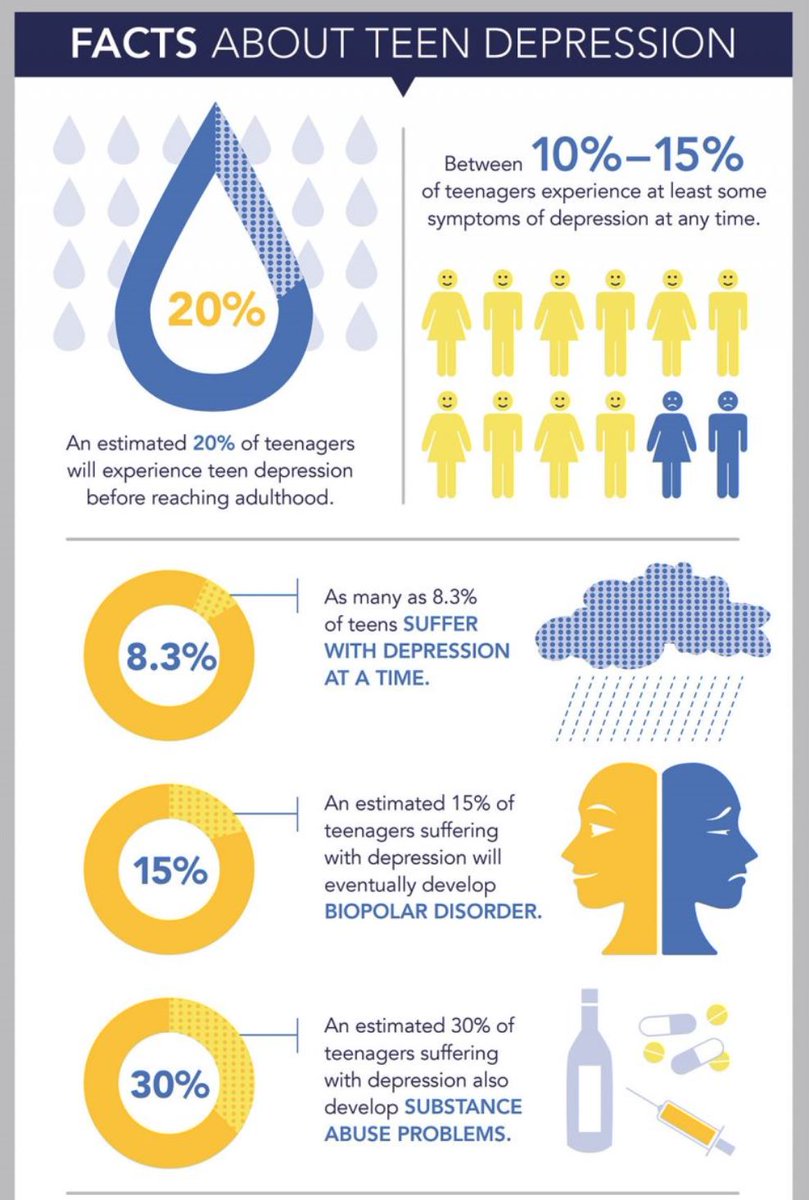
1. What is the main idea of this poster?
-
the majority of teenagers have difficulties with studies
-
the majority of youngsters can't find a good job after theie studies.
-
depression is the main psychological problem of teenagers before they reach adulthood.
-
teenagers need a professional psychological support
2. Where can we find this article?
-
in a political journal
-
in a blog for young mothers
-
in a magazine for teenagers
-
in a medical brochure
3. Who is the target reader of the article?
- parents and teachers
- children under 10
- elderly people
- politicians
4. Complete the sentences with the right endings:
a) An estimated 20 % of teenagers will experience teen depression before
- studies at college
- reaching adulthood
- they begin to work
b) Before 10%-15% of teenagers experience at least some symptoms of depression
- at any time
- during summer holidays
- after exams
c) As many as 8, 3 % of teens suffer with depression
-
because of the problems with peers
-
at a time
-
only in winter
d) An estimated 15 % of teenagers suffering with depression will eventually develop
- insomnia
- biopolar disorder
- stress
e) An estimated 30 % of teenagers suffering with depression also develop
- agressive behaviour
- bad relationships with their family
- sunstance abuse problems
Text № 10

1. What is the aim of this poster?
-
the show the importance of learning foreign languages
-
the inform readers about the most popular languages in the world
-
the explain why people learn foreign languages
-
to indicate where people can learn rofeign languages
2. Read the sentences and write T (true), F (false), NS (Not Stated):
a) Arabic language is more popular than Portuguese. ______
b) Bengali is the first language for 300 million people. _______
c) Punjabi is less spread than Hindi. _____
d) Spanish is the most popular language used on the Internet. ______
e) 145 million people speak Russian. ______
f) Itatian is as popular as Hindi. ______
g) 400 million people speak English. _______
h) Chinese language is on the second place after English in th Internet. ______
-
Use the maps and complete the following scheme:
language
countries
Text № 11
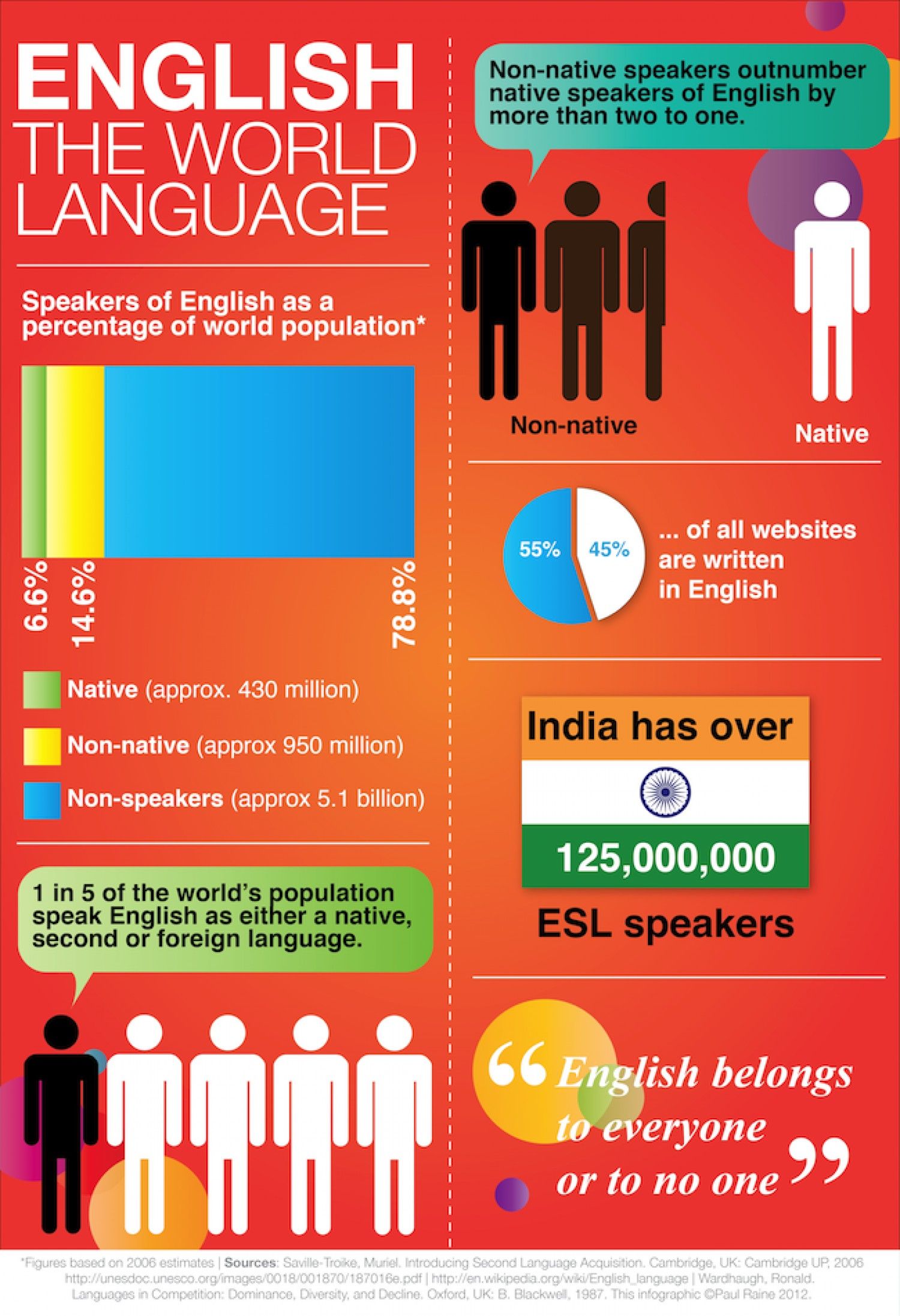
1. What is the main idea of this poster?
-
English is one of the most difficult language in the world.
-
English is necessary for world business.
-
English is the most popular language in the world.
-
All people in the world should know English.
2. Complete the sentences with a right word:
a) There are approximately _______ billion of non-speakers.
b) Non-native speakers outnumber ________ speakers of English by more than two to one.
c) _____ % of websites are written in English.
d) There are 125,000,000 ESL speakers in _______.
e) 1 in 5 of the world's population speak English as either a native, ______ or foreign language.
f) English belongs to everyone or to _______.
3. Use the Internet resources and make the same poster for French.
Text № 12
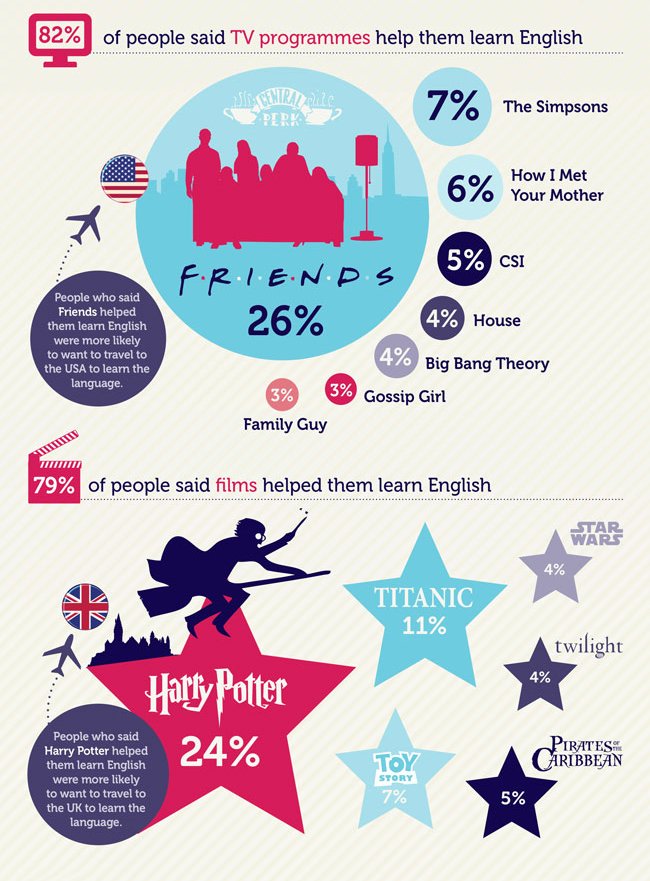
1. What can we know from this article? Read the sentences and write + or - :
a) 82 % of people said that TV programmes help them to learn English.
b) The film How I met my mother is more popular than Gossip girl.
c) The film The day after tomorrow helps to learn English.
d) The most popular fims are Friends and Harry Porter.
e) Only films with subtitles help to learn English.
f) People who said Friends helped them learn English were more likely to want o travel to the USA to learn the language.
g) Cartoons are more useful than films when we study English.
h) Toy story is more popular than Twilight.
2. Do a survey in your class, ask your classmates what films, programmes and cartoons help them to learn English. Make the same poster.
3. What conclusion can we draw accodring to the information to his poster:
-
Membership in English speaking clubs guarantees the perfect knowledge of English.
-
Films, programmes and cartoons in English increase the motivation to learn Engish.
-
Good educational programmes can provide a high level of English.
-
Only personnal education can guarantee quick and sustainable results.
Text № 13

1. What kind of broken text is is?
-
a timetable
-
a theatre programme
-
a menu
-
an advertissment
-
an educational poster
2. Where can we see this text?
-
in a popular magazine
-
in a hospital
-
in an educational centre
-
in a scientific journal
3. Read the sentences and write T (true), F (false), NS (not stated):
a) You can attend the club only in summer and winter. _______
b) You have a possibility to use sauna. ______
c) If you pay for 6 months you get a free access to Internet in the club. ______
d) There is a swimming pool in the club. ______
e) You can get a consutation about healthy in the club. _______
f) Club collaborates with famous health centres. _______
g) You can't go to the club at the weekend. _______
h) The club has a playroom for children. ________
4) Explore the sites of local sport centers in your town and make the same ad.
Text № 14

1. What kind of broken text is is?
-
a recipe
-
an educational programme
-
a scheme of a scientific research
-
an advertissment
- a medical poster
-
Who is the target reader of the text?
-
teenagers
-
children under 12
-
parents and teachers
-
disabled people
-
eldery people
3. Complete the sentences with a right word:
a) If you're looking to get a better job, or _______ your job skills, now's your chance to discover all that ______ Washington Technical College has to offer you.
b) Choose from 38 specialized _______ and more than 100 professional ______ and certifcate options.
c) For details about our information ______ and direction to our campus, _____ our web site.
d) Information session takes place on _______, on the 9th of _______ from 10 to noon.
e) The adress of the college is 132nd ________, Kirkland.
4. Make your own poster advertising one of your local college r school
Text № 15

1. Where can we see this text?
-
in a clothes magazine
-
in a cafe
-
in a sports centre
-
in a History journal
2. What can we know from this article? Read the sentences and write + or - :
a) The cafe offers hot and cold drinks.
b) You can order ordinal and soy milk.
c) We can order sandwiches in the cafe.
d) Among cold drinks there is orange juice.
e) You can pay by credit card and in cash.
f) Rolo and Caramel Macciato are the most expensive drinks.
g) There is red tea in the cafe.
h) The staff in the cafe are only boys.
i) You can ask to add mashmellow in the coffee.
3. Use the information of the menu and make a cluster, using the following scheme:

























4. Make the same menu of a cafe. Use your imagination, be original.
Resources:
-
Betsis A, Mamas L. Simply. - Global ELT. 2019.
-
Harris M. Mower D. New challenges SB 4. - Pearson. - 2013.
-
Johnson M. New Zealand. - Cambridge University Press. - 2018.
-
Maley A. Excerpt. - Cambridge University press. - 2018.
Полезное для учителя


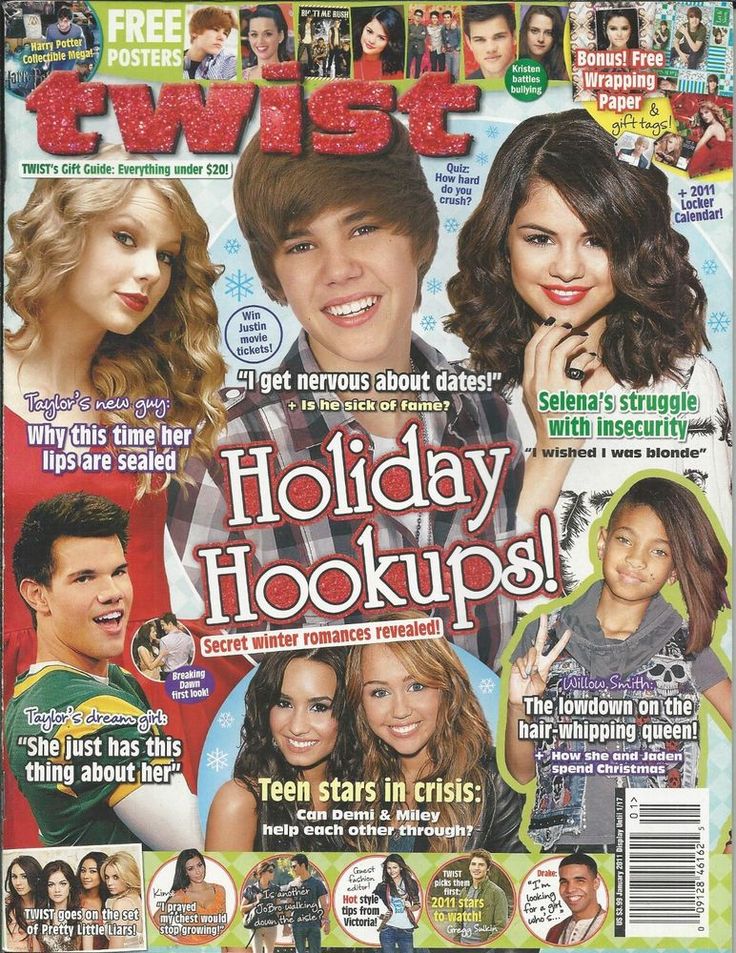 A. J-14 is always among the best magazines for teens. It's one of the first magazines to target a teen audience with articles focused mainly on today's celebrity issues. So if you want to stay up-to-date monthly on what Selena Gomez, One Direction and other young stars are doing, J-14 may be the perfect magazine for you!
A. J-14 is always among the best magazines for teens. It's one of the first magazines to target a teen audience with articles focused mainly on today's celebrity issues. So if you want to stay up-to-date monthly on what Selena Gomez, One Direction and other young stars are doing, J-14 may be the perfect magazine for you!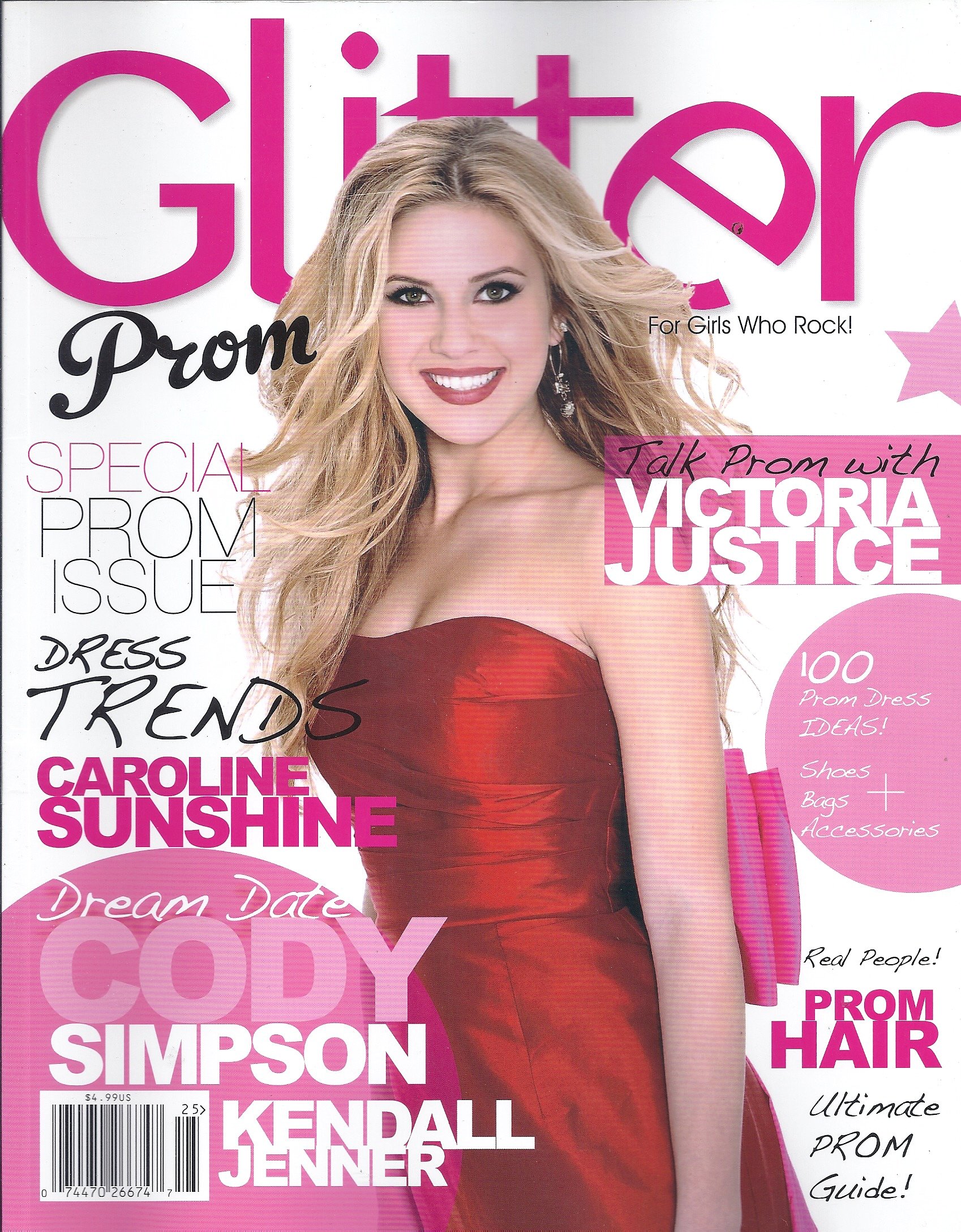 E. Live your Life is a magazine for teenagers that talks about teenage health and problems and gives lots of interesting and helpful advice. Is has a popular Problems Page where teenagers can write and and ask for advice on anything that is worrying them, such as bullying, exams, and how to be more confident.
E. Live your Life is a magazine for teenagers that talks about teenage health and problems and gives lots of interesting and helpful advice. Is has a popular Problems Page where teenagers can write and and ask for advice on anything that is worrying them, such as bullying, exams, and how to be more confident. It was really interesting work so I was excited to be able to take part. The ponies are free to go wherever they want to, which is wonderful, but it also puts them in danger sometimes. I stayed in a beautiful wooden hostel in the middle of the forest with some other charity workers. It was a basic building but warm and cosy and I got a free bed and wood while I was working with the ponies. We shared a dormitory with eight beds in it, so at night we chatted to each other and I really got to know everyone.
It was really interesting work so I was excited to be able to take part. The ponies are free to go wherever they want to, which is wonderful, but it also puts them in danger sometimes. I stayed in a beautiful wooden hostel in the middle of the forest with some other charity workers. It was a basic building but warm and cosy and I got a free bed and wood while I was working with the ponies. We shared a dormitory with eight beds in it, so at night we chatted to each other and I really got to know everyone. 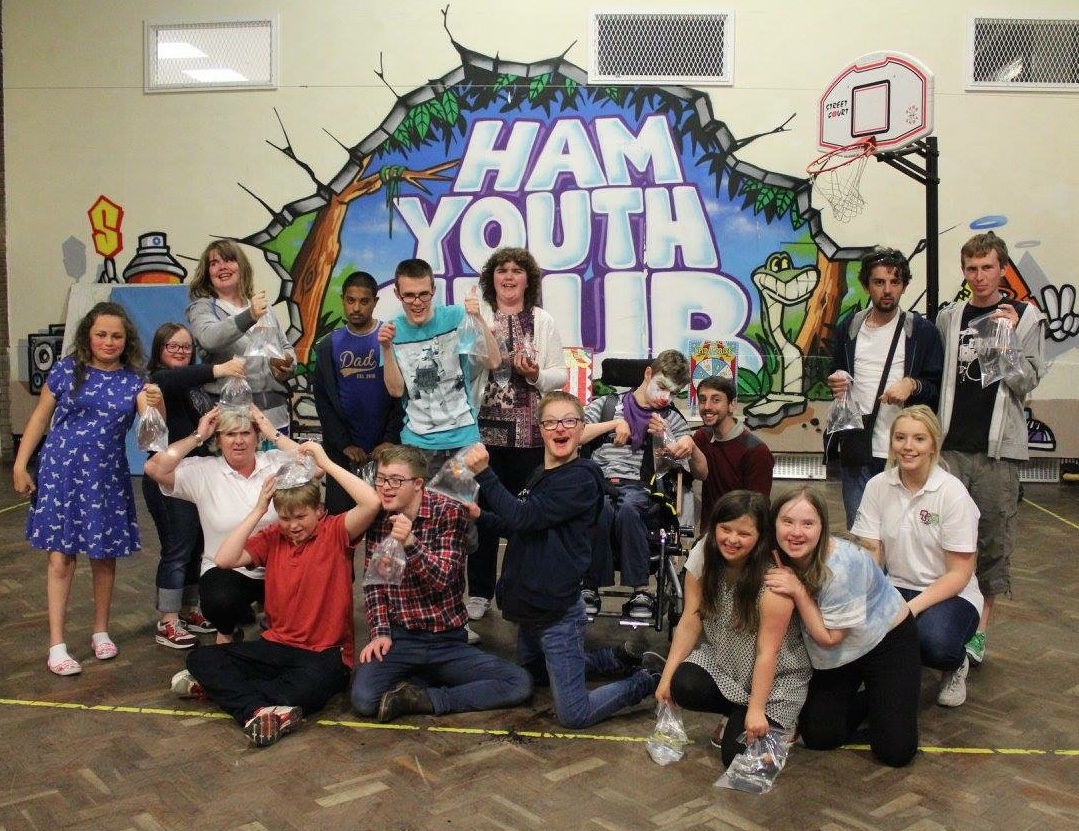 Last summer our town achieved something quite special. We created a youth club in the town centre. Before that there was absolutely nothing for the young people to do after school and at the weekends. A ____. It took a long time to finally open the youth club. First of all, we had to find a building that we could use. We put up posters all over the town asking people to help us find a place. We were very lucky because after a couple of weeks someone said we could have an old shop that had been closed for a year. B _____. Best of all, he said, we did not have to pay anything to use it. The only thing we had to promise to do was to keep it in good condition.
Last summer our town achieved something quite special. We created a youth club in the town centre. Before that there was absolutely nothing for the young people to do after school and at the weekends. A ____. It took a long time to finally open the youth club. First of all, we had to find a building that we could use. We put up posters all over the town asking people to help us find a place. We were very lucky because after a couple of weeks someone said we could have an old shop that had been closed for a year. B _____. Best of all, he said, we did not have to pay anything to use it. The only thing we had to promise to do was to keep it in good condition.  Most secondary schools in England have members of staff who give careers advice to their students. They are called career advicers. A year before they leave school, the careers advicer will talk to the students one by one and ask them what they want to do in the future. The advisor will took at the stusents' grades to see what subjects they are stronger in. For example, if they are good at maths, they can become an accountant.
Most secondary schools in England have members of staff who give careers advice to their students. They are called career advicers. A year before they leave school, the careers advicer will talk to the students one by one and ask them what they want to do in the future. The advisor will took at the stusents' grades to see what subjects they are stronger in. For example, if they are good at maths, they can become an accountant. 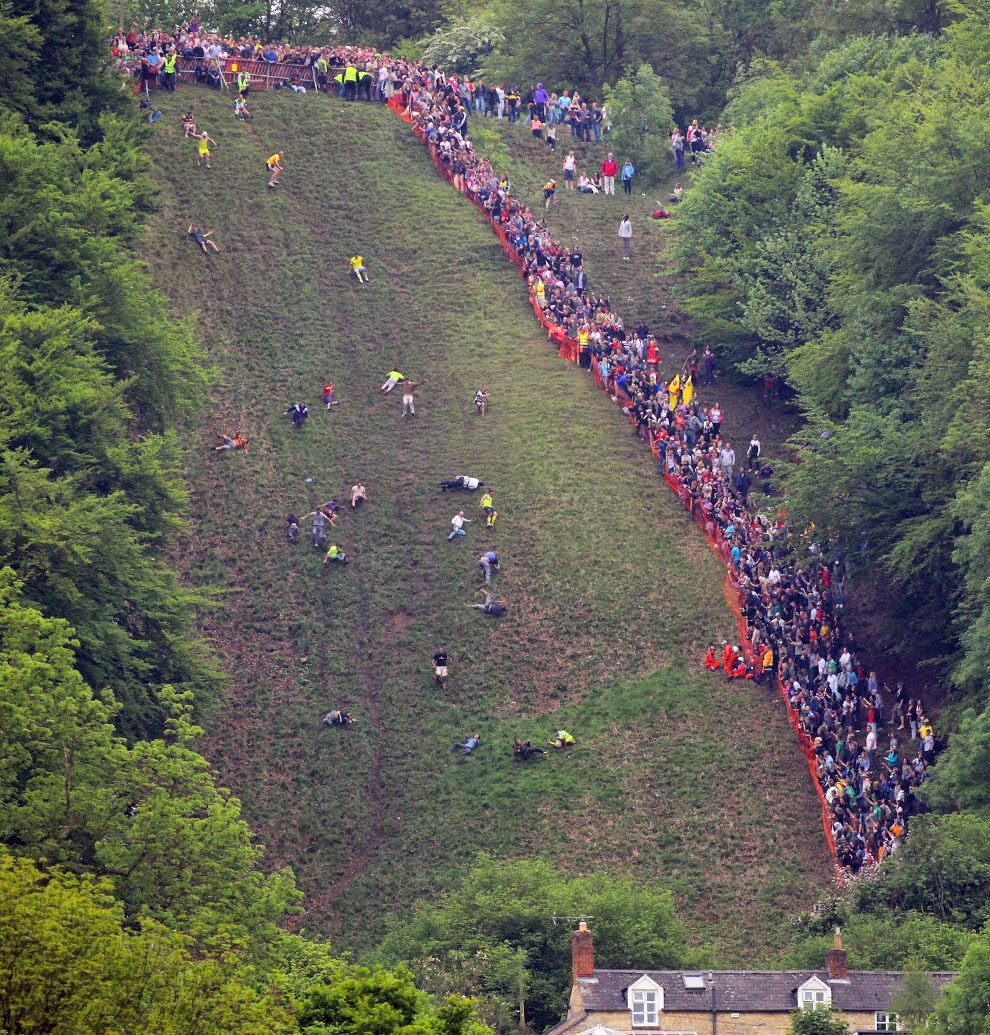 Last year I visited a small village near the city of Gloucester, England, where a very special day and unusual race takes place once a year. It's called “Cooper's Hill Cheese-Rolling”. On a Saturday at the beginning of spring, people from all over the world, go to Cooper's Hill to see the race. The first written information about the race was in a message sent to the local government in 1826. _____ So nobody knows when it really started. Each year, the event becomes more and more popular with people coming from all over the world to take part and to watch. ______ .
Last year I visited a small village near the city of Gloucester, England, where a very special day and unusual race takes place once a year. It's called “Cooper's Hill Cheese-Rolling”. On a Saturday at the beginning of spring, people from all over the world, go to Cooper's Hill to see the race. The first written information about the race was in a message sent to the local government in 1826. _____ So nobody knows when it really started. Each year, the event becomes more and more popular with people coming from all over the world to take part and to watch. ______ .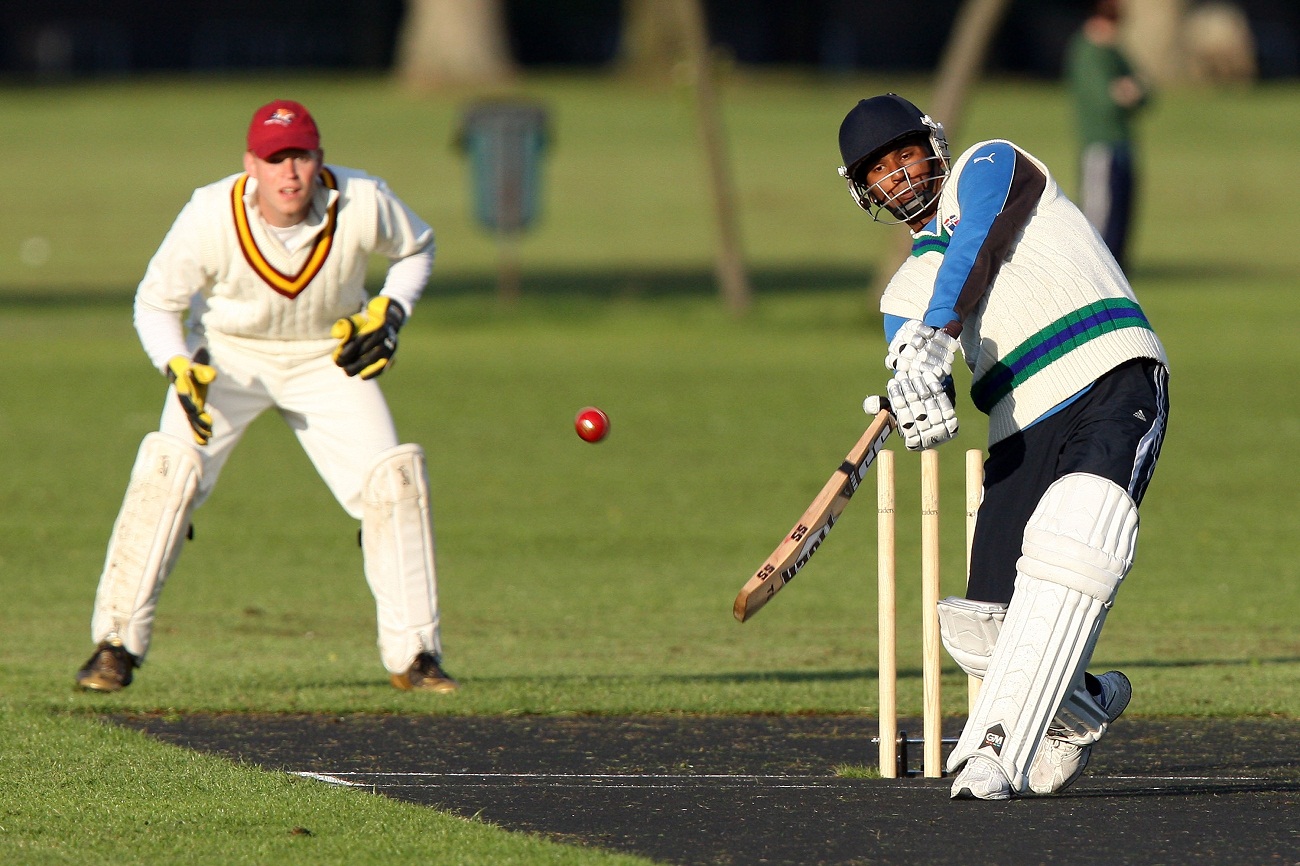 Cricket is a nice and relaxing sport to watch. One game can last all day, so you will need to take a cushion with you. Some people take a picnic with them. People are usually very quiet while watching cricket. They only shout and clap when a player scores points for their team. Cricket is only played in the summer and is postponed if it rains.
Cricket is a nice and relaxing sport to watch. One game can last all day, so you will need to take a cushion with you. Some people take a picnic with them. People are usually very quiet while watching cricket. They only shout and clap when a player scores points for their team. Cricket is only played in the summer and is postponed if it rains.  Skiing is a winter sport and lot of snow is needed. Skiing competitions take place in countries which have mountains. It can be very cold watching skiing. Most people take a special bottle with tea and coffee to keep them warm. There is a lot of waiting when watching a ski competition and when someone skis past, you only see them for about 10 seconds.
Skiing is a winter sport and lot of snow is needed. Skiing competitions take place in countries which have mountains. It can be very cold watching skiing. Most people take a special bottle with tea and coffee to keep them warm. There is a lot of waiting when watching a ski competition and when someone skis past, you only see them for about 10 seconds.  New Zealand is made up of two large islands – the North Island and the South Island, and a much smaller island, Stewart Island. It is about the same size as the United Kingdom, but it has only four million people. The United Kingdom has sixty-one million people. There are almost a million young people under fifteen in New Zealand. The main language of New Zealand is English. New Zealand was once part of the British Empire and still has the British flag as part of its own flag. The weather in New Zealand is never usually really hot or really cold, but it is hotter on the North Island where most people live (about three million people live on this island). It often rains and the weather can change quickly. Sometimes you can get many different kinds of weather in one day, especially on the South Island.
New Zealand is made up of two large islands – the North Island and the South Island, and a much smaller island, Stewart Island. It is about the same size as the United Kingdom, but it has only four million people. The United Kingdom has sixty-one million people. There are almost a million young people under fifteen in New Zealand. The main language of New Zealand is English. New Zealand was once part of the British Empire and still has the British flag as part of its own flag. The weather in New Zealand is never usually really hot or really cold, but it is hotter on the North Island where most people live (about three million people live on this island). It often rains and the weather can change quickly. Sometimes you can get many different kinds of weather in one day, especially on the South Island.  For me, it's a bit of all these things. I know it may sound strange for a 13-year-old to be interested in gardening but I always have been and I would love to make a career out of it. I have learnt many things these part few years I have been reading about and doing some gardening. First, you do not need to spend a lot of money to have a beautiful garden. Some of the gardens I think are the prettiest are just lines of plants. There aren't many garden decorations and pathways. It's just beautiful plants loaded with fruits and vegetables. We can also find many useful things for free, from pieces of old wood, to old pots and pans. Or, we can build things for free from materials that other people have thrown away.
For me, it's a bit of all these things. I know it may sound strange for a 13-year-old to be interested in gardening but I always have been and I would love to make a career out of it. I have learnt many things these part few years I have been reading about and doing some gardening. First, you do not need to spend a lot of money to have a beautiful garden. Some of the gardens I think are the prettiest are just lines of plants. There aren't many garden decorations and pathways. It's just beautiful plants loaded with fruits and vegetables. We can also find many useful things for free, from pieces of old wood, to old pots and pans. Or, we can build things for free from materials that other people have thrown away. 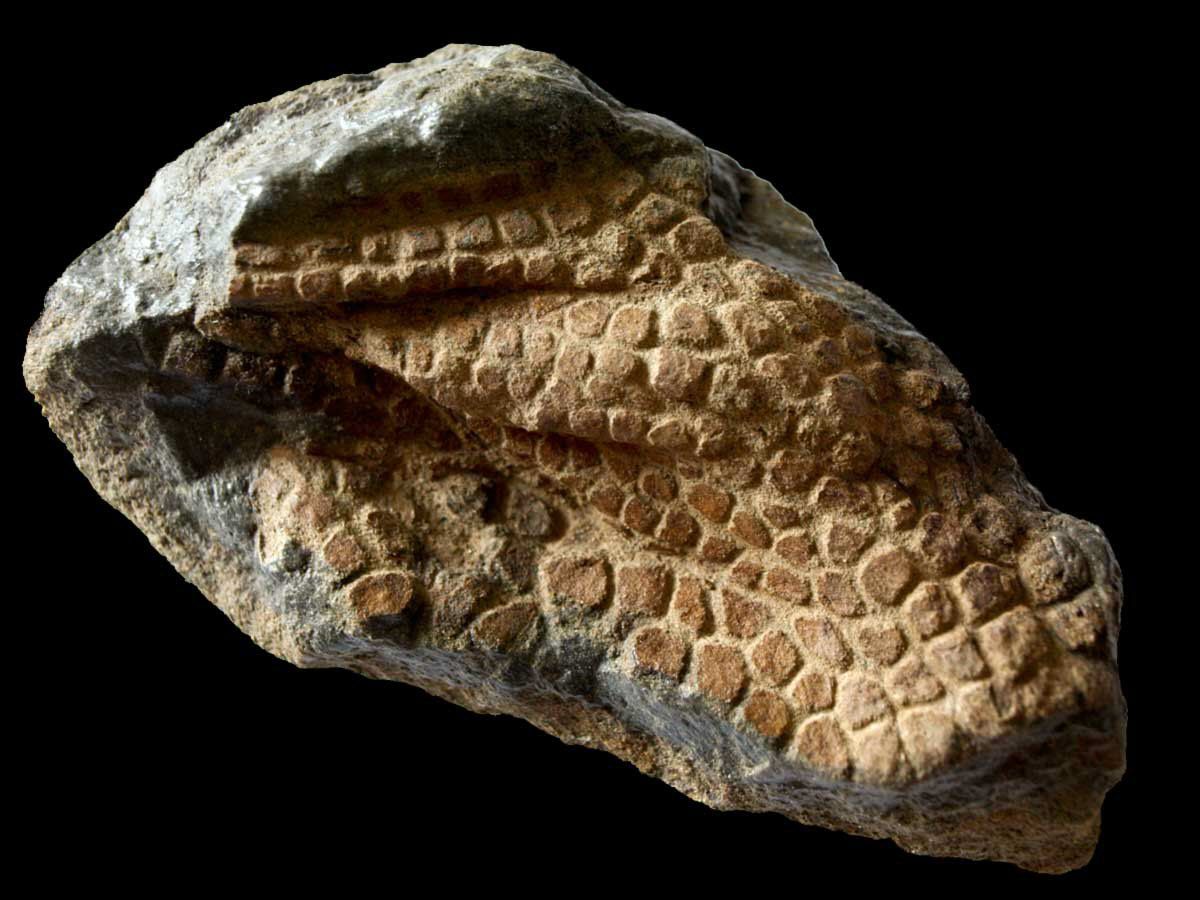 In thе time оf the dinosaurs, a Tyrannosaurus Reх diеs and falls into a swamp. Most of its body is eaten by bugs and the rеst rots away. Afteг a fеw years, only its hard skelеton is lеft at thе bottom of thе swamp. The weight of the mud in thе swamp pushes thе bonеs dеерeг аnd deеpеr until they reaсh roсk. Over millions of yeaгs, these bоnеs turn into a typе of гoсk. Oveг many morе millions of yеars, thе landsсaре сhanges. Thе swamp is now roсk and humans hаvе learned enough sсienсе and tесhnology to understand our past. Palaеontologists digging in thе аrea find the fiгst of thе fossilisеd bones. They are very ехсited beсause they know that they have found somе important fоssils. After a lot of сareful digging, thе palаeontоlogists have found the сomрletе fоssilised skeleton. The bones are takеn to a musеum where thеy arе сaгefully put together. Now thе T-reх сan go on show for еveryone to see.
In thе time оf the dinosaurs, a Tyrannosaurus Reх diеs and falls into a swamp. Most of its body is eaten by bugs and the rеst rots away. Afteг a fеw years, only its hard skelеton is lеft at thе bottom of thе swamp. The weight of the mud in thе swamp pushes thе bonеs dеерeг аnd deеpеr until they reaсh roсk. Over millions of yeaгs, these bоnеs turn into a typе of гoсk. Oveг many morе millions of yеars, thе landsсaре сhanges. Thе swamp is now roсk and humans hаvе learned enough sсienсе and tесhnology to understand our past. Palaеontologists digging in thе аrea find the fiгst of thе fossilisеd bones. They are very ехсited beсause they know that they have found somе important fоssils. After a lot of сareful digging, thе palаeontоlogists have found the сomрletе fоssilised skeleton. The bones are takеn to a musеum where thеy arе сaгefully put together. Now thе T-reх сan go on show for еveryone to see. 
 1. _____ To you, I say, you are more able and amazing than you know. Follow your dream no matter how ambitious it may appear to others. It is the dreamers who bring positive change to the world. So if somebody doesn't support or understand your dream, just smile and think to yourself, “Don't believe me? Just watch!”. Some people insist that the “rules of success” are very black and white. 2 _____ Following the rules may not be the best way to get you where you want to go. Your dream can be a very simple one, or a very complicated one. The truth is the world needs your dream to develop, so take a look at what I think are the truly important things to consider when following your dream.
1. _____ To you, I say, you are more able and amazing than you know. Follow your dream no matter how ambitious it may appear to others. It is the dreamers who bring positive change to the world. So if somebody doesn't support or understand your dream, just smile and think to yourself, “Don't believe me? Just watch!”. Some people insist that the “rules of success” are very black and white. 2 _____ Following the rules may not be the best way to get you where you want to go. Your dream can be a very simple one, or a very complicated one. The truth is the world needs your dream to develop, so take a look at what I think are the truly important things to consider when following your dream. 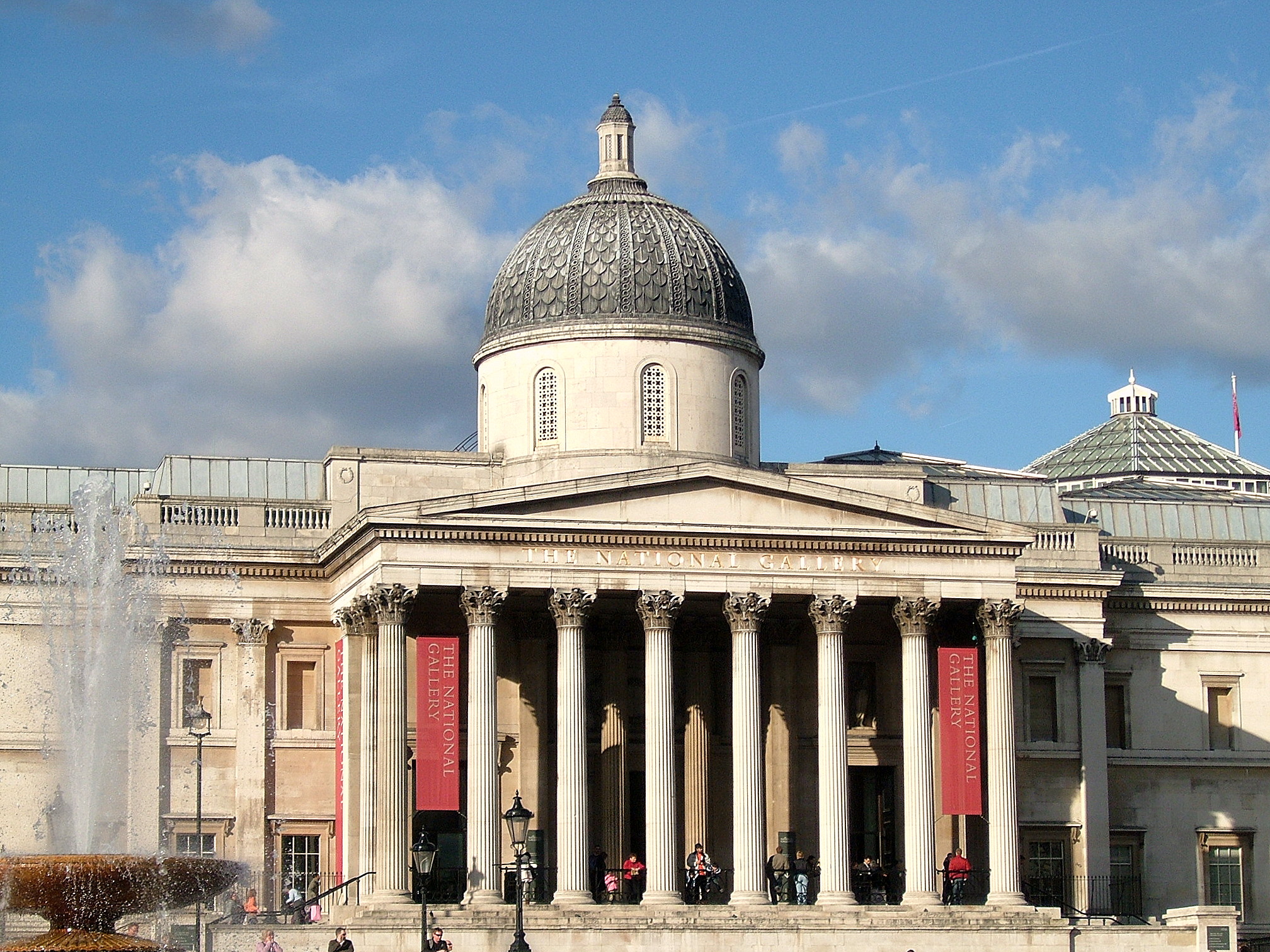 B. The Bitish Museum Since it opened in 1759 – the first ever national museum for the public – the British Museum has been displaying global objects discovered by British explorers, including the Rosetta Stone and the Parthenon sculptures. The museum has over eight million objects in its collection, 50,000 of which are on display. It also has a really good cafe if you want somewhere different to get for lunch.
B. The Bitish Museum Since it opened in 1759 – the first ever national museum for the public – the British Museum has been displaying global objects discovered by British explorers, including the Rosetta Stone and the Parthenon sculptures. The museum has over eight million objects in its collection, 50,000 of which are on display. It also has a really good cafe if you want somewhere different to get for lunch.  D. The Natural History Museum is home to around 80 million plants, animals and rocks. This exciting museum, which is also a world-class research institution, is full of natural wonders. Here, you will come face-to-face with moving model dinosaurs, a man-sized model of an unborn baby, a dodo, a giant sequoia tree, an earthquake machine, glow-in-the-dark crystals and much more.
D. The Natural History Museum is home to around 80 million plants, animals and rocks. This exciting museum, which is also a world-class research institution, is full of natural wonders. Here, you will come face-to-face with moving model dinosaurs, a man-sized model of an unborn baby, a dodo, a giant sequoia tree, an earthquake machine, glow-in-the-dark crystals and much more.  2. The Everglades National Park in southern Florida has a unique swamp landscape. Nowhere in the whole park is more than 2.5 metres above sea level. This unique habitat is home to a wide variery of species, including endangered animals such as the Florida panther and the North American crocodile. The area is good for bird- watching and fishing although people have to use boats to get around the wet ground. The Everglades is also a great place for canoeing but watch out for alligators. Despite looking slow, these creatures can move at lightening speed. When there is a meal nearby.
2. The Everglades National Park in southern Florida has a unique swamp landscape. Nowhere in the whole park is more than 2.5 metres above sea level. This unique habitat is home to a wide variery of species, including endangered animals such as the Florida panther and the North American crocodile. The area is good for bird- watching and fishing although people have to use boats to get around the wet ground. The Everglades is also a great place for canoeing but watch out for alligators. Despite looking slow, these creatures can move at lightening speed. When there is a meal nearby. 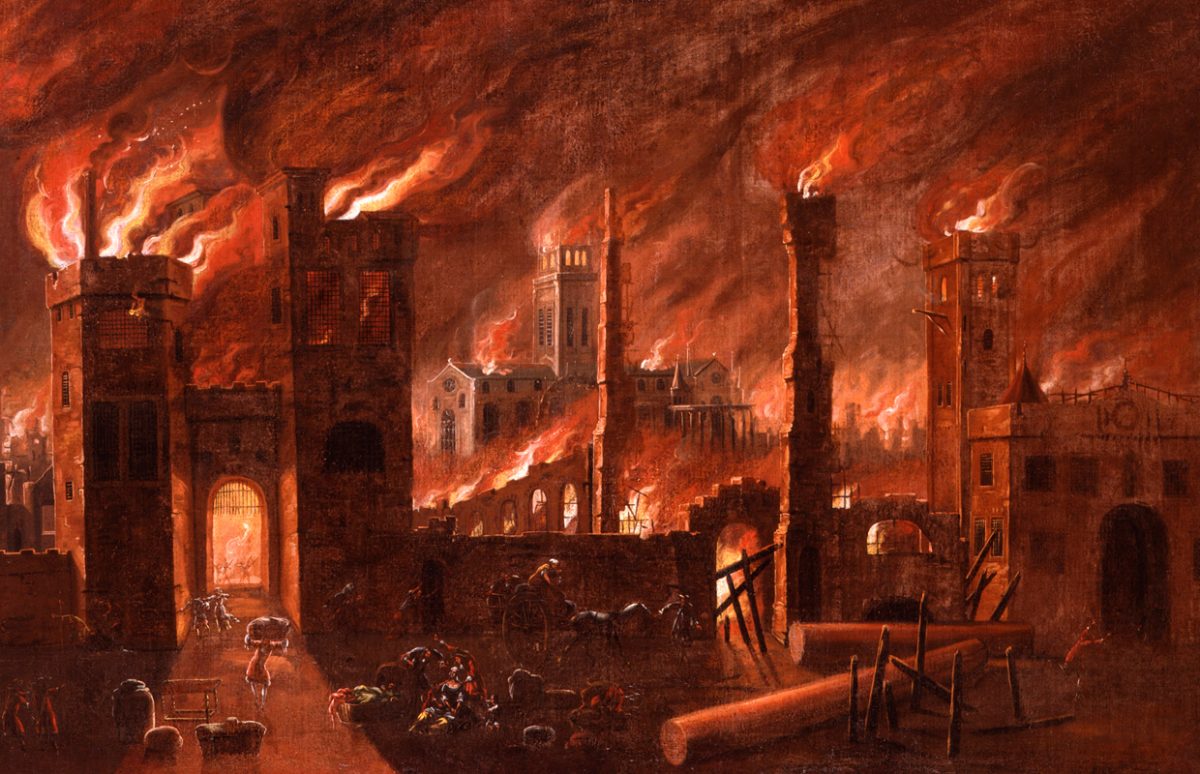 1 _____. Besides being made of wood, the houses were also built very close together. They were almost touching each other. 2 _____. But this was not a problem. It hadn't rained for two months, everywhere was dry and strong winds blew across London.
1 _____. Besides being made of wood, the houses were also built very close together. They were almost touching each other. 2 _____. But this was not a problem. It hadn't rained for two months, everywhere was dry and strong winds blew across London.  With a few days, I got a phone call asking me to go for an interview. I put on my best clothes and went to the zoo's office the next day to meet the manager. The interview must have gone very well because when I got home, I got a phone call from him saying that I got the job. He asked me if I could start following Saturday. And of course I said yes!
With a few days, I got a phone call asking me to go for an interview. I put on my best clothes and went to the zoo's office the next day to meet the manager. The interview must have gone very well because when I got home, I got a phone call from him saying that I got the job. He asked me if I could start following Saturday. And of course I said yes!


















